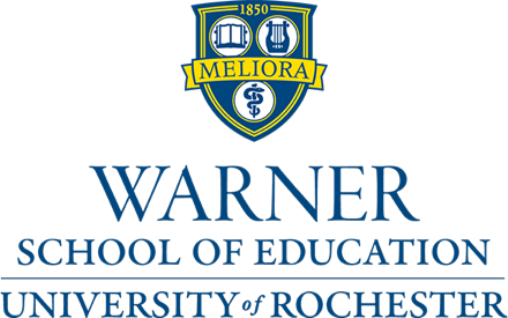
U
NIVERSITY OF ROCHESTER
MARGARET WARNER GRADUATE SCHOOL
OF
EDUCATION AND HUMAN
DEVELOPMENT
FACULTY HANDBOOK
2024
I. PREFACE .................................................................................................................................4
II. MISSION, VISION, AND ORGANIZATION ........................................................................5
A. MISSION AND VISION ..................................................................................................5
1. Mission Statement .............................................................................................................5
2. Vision Statement ...............................................................................................................6
B. EQUITY, DIVERSITY AND INCLUSION .....................................................................6
1. Equity, Diversity, and Inclusion Statement .......................................................................6
C. ORGANIZATIONAL STRUCTURE ...............................................................................6
1. Educational Leadership .....................................................................................................7
2. Counseling and Human Development...............................................................................7
3. Teaching and Curriculum ..................................................................................................7
4. Center for Disability and Education ..................................................................................7
5. Center for Learning in the Digital Age (LiDA) ................................................................7
6. Center for Professional Development & Education Reform .............................................7
7. Center for Urban Education Success (CUES) ...................................................................8
III. FACULTY APPOINTMENTS, REAPPOINTMENTS, & PROMOTION .............................8
A. FACULTY ........................................................................................................................8
1. Definitions of Faculty Categories ...................................................................................10
2. Principles and Processes for Changing Faculty Track ....................................................11
3. Process for Deciding on New Faculty Positions .............................................................12
B. INITIAL APPOINTMENTS & CONTRACTS ..............................................................12
1. Hiring Guidelines ............................................................................................................12
2. Process for Hiring Associate and Full Professors with Tenure from Outside the
University with Tenure ...........................................................................................................13
C. TENURE-TRACK FACULTY: TENURE AND PROMOTION ..................................14
1. Reappointment of Tenure-Track Faculty ........................................................................15
2. Promotion to Associate Professor with Tenure ...............................................................17
3. Promotion to Associate Professor Without Tenure .........................................................21
4. Promotion to Full Professor ............................................................................................21
D. CLINICAL TRACK FACULTY ....................................................................................22
1. Criteria for Hiring, Reappointing, and Promoting Clinical Faculty ................................23
2. Reappointment of Clinical Faculty .................................................................................24
3. Promotion to Associate or Full Professor (Clinical) .......................................................25
IV. FACULTY RESPONSIBILITIES ..........................................................................................27
A. TEACHING AND ADVISING ......................................................................................27
1. Teaching Guidelines and Instructional Support ..............................................................27
2. Advising ..........................................................................................................................30
3. Serving on Capstone Project Committees .......................................................................31
B. RESEARCH & SCHOLARSHIP ....................................................................................31
1. Expectations ....................................................................................................................31
2. Warner RSRB Application Submission Procedures .......................................................32
3. Course Buyout Policy......................................................................................................32
4. Graduate Assistantships ..................................................................................................32
C. SERVICE ........................................................................................................................33
1. Accreditation ...................................................................................................................33
2. Recruitment & Admissions .............................................................................................34
D. PROFESSIONAL DEVELOPMENT .............................................................................35
1. Faculty Annual Reviews .................................................................................................35
2. Faculty Professional Expense Allowance .......................................................................36
V. SHARED GOVERNANCE ....................................................................................................37
A. WARNER FACULTY BYLAWS ..................................................................................38
B. SHARED GOVERNANCE COMMITTEES .................................................................40
1. Faculty Steering Committee ............................................................................................40
2. Warner School Admissions and Financial Aid Committee (AFAC) ..............................40
3. Warner School Academic Policy Committee (APC) ......................................................40
C. WARNER FACULTY REPRESENTATION ON UNIVERSITY COMMITTEES .....41
1. UR Faculty Senators Executive Committee ....................................................................41
2. UR Faculty Senators........................................................................................................41
3. UR Faculty Senate Committees ......................................................................................41
4. RSRB Board Member .....................................................................................................41
VI. FACULTY RESOURCES ......................................................................................................41
A. GRANT OFFICE ............................................................................................................41
B. INFORMATION TECHNOLOGY .................................................................................41
C. COMMUNICATIONS AND MARKETING .................................................................41
D. AMERICANS WITH DISABILITY ACT RESOURCES .............................................43
VII. UNIVERSITY RESOURCES ................................................................................................43
A. ACADEMIC LEAVE .....................................................................................................43
B. PRE-TENURE LEAVE ..................................................................................................44
C. BRIDGING FELLOWSHIP ...........................................................................................44
D. TUITION WAIVER ........................................................................................................45
E. ORPA OFFICE ...............................................................................................................45
Appendix A: Promotion Guidelines for Preparing the Personal Statement ...................................47
Appendix B: Criteria and Indicators for Evaluating Clinical Faculty ...........................................48
Appendix C: Warner School of Education and Human Development Organization Charts .........58

4
I. PREFACE
The Warner School Faculty Handbook aims to assist faculty members in fulfilling their role as
educators and researchers in education, counseling, and human development. Policies and
procedures are designed to facilitate the faculty role in a complex academic setting. This
handbook is meant to be consistent with the University of Rochester’s Faculty Handbook. The
Warner School Faculty Handbook is updated and posted to the Warner Intranet from time to
time.
Annually, the Warner School Faculty Handbook will be reviewed by the standing Faculty Affairs
Committee at Warner and proposed revisions will be taken to the faculty for vote and adoption.
Non-substantive changes, such as reference to university resources and organizational charts,
will be made by the Dean’s Office in its discretion. For policies and procedures not found in this
document, please consult the University of Rochester Faculty Handbook and the Office of
Human Resources website.
The University of Rochester Faculty Handbook is published and maintained by the Office of the
Provost. It is subject to change from time to time and the current published version should
always be consulted when the need arises.
Rev. 2/2024

5
II. MISSION, VISION, AND ORGANIZATION
A. MISSION AND VISION
1. Mission Statement
Any definition of faculty roles and responsibilities should be informed by the mission of the
institution, as ultimately, the faculty as a whole is responsible for accomplishing such a
mission. Therefore, in this section, we set out the Warner School’s mission statement and
use it to derive the set of functions that Warner faculty are expected to perform.
At the Warner School of Education and Human Development, we believe that education
can transform lives and make the world more just. This mission informs our teaching,
research, and service as a graduate professional school in a research institution, as we strive
to:
• PREPARE practitioners and researchers who are knowledgeable, reflective, skilled,
and caring educators, who can make a difference in individual lives as well as their
fields, and who are leaders and agents of change.
• GENERATE and disseminate knowledge leading to new understandings of
education and human development, on which more effective educational policies
and practices can be grounded.
• COLLABORATE across disciplines, professions, and constituencies to promote
change that can significantly improve education and support positive human
development.
Our diverse work in each of these domains is informed by the underlying beliefs: the
improvement of education is in pursuit of social justice; development and learning shape
and are shaped by the contexts in which they occur; the complexity of educational problems
requires an interdisciplinary and collaborative approach; and best practices are grounded in
research and theory, just as useful theory and research are informed by practice.
The following considerations further articulate some of the major implications of this
mission statement for preparing education practitioners.
The University of Rochester, recognized as a Carnegie classification Research-1 institution
and a member of the Association of American Universities (AAU), has a strong tradition of
producing research. Consistent with this tradition, the Warner School faculty is committed
to producing educational research and inquiry to improve our understanding of significant
educational issues and processes; address educational problems in an informed and
effective way; help improve educational processes and institutions; and enhance the
preparation of practitioners. We believe that faculty who are engaged in research will be
well placed to provide innovative, insightful, useful, and up-to-date programs for the
preparation of education practitioners – as they can draw upon and interpret educational
research in their teaching and supervision and thus introduce candidates to the most recent
discoveries in their fields, expose them to research as it practiced in the world, and model
enthusiasm for their subjects and the research enterprise.
Our programs for preparing practitioners also benefit from the faculty’s commitment to
collaborate with schools and other institutions to promote and implement concrete
improvements in education. Our faculty members are regularly engaged with and support
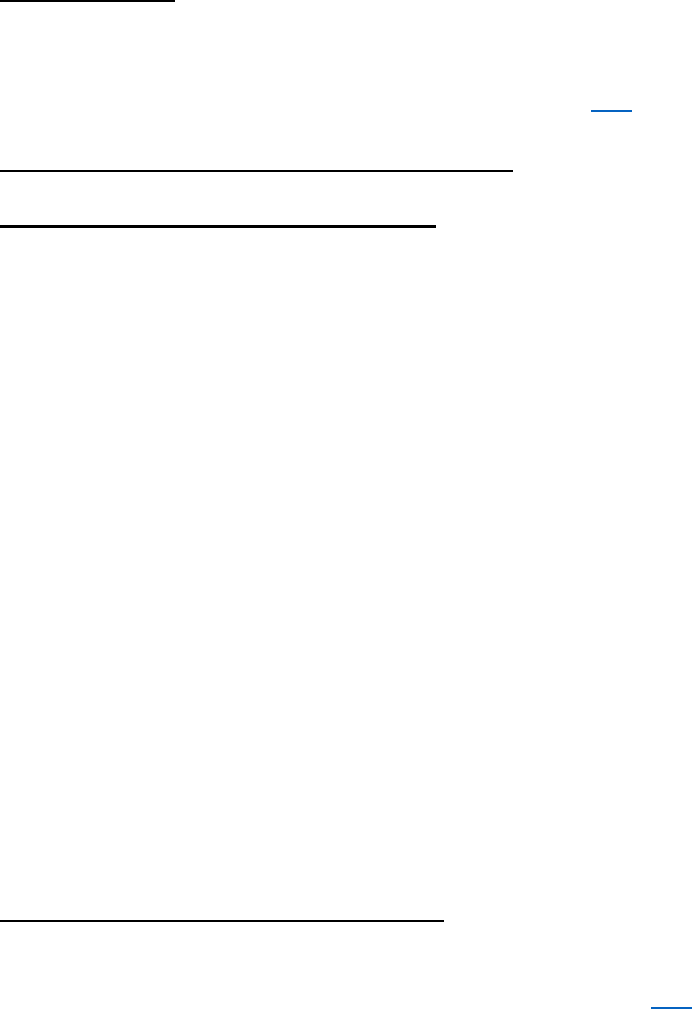
6
those directly involved in educational reform. The first-hand experience the faculty gain
through these efforts translates into benefits to our students, who are thus brought into
contact with current issues and solutions in educational improvement in the context of their
coursework and internships.
2. Vision Statement
We will become a leader in the fields of learning, counseling, and leadership through
academic excellence and in preparing students for future success.
To pursue this vision, our current strategic plan can be found here.
B. EQUITY, DIVERSITY AND INCLUSION
1. Equity, Diversity, and Inclusion Statement
Cultivating and sustaining an equitable, respectful and welcoming environment for all
The Warner School of Education and Human Development fosters a learning community that
represents and builds on the rich diversity of human experiences, backgrounds, cultures,
histories, ideas, and ways of living. Consistent with our dedication to education, counseling,
and human development that can transform lives and make the world more just and humane,
our equal opportunity diversity policies apply to the recruitment and admission of our
students, the administration of our educational policies and programs, and the recruitment
and retention of our faculty and staff. We also strive to identify barriers and implement
strategies to enhance representation of underrepresented groups. Creating such an
educational community requires actively recruiting and retaining students, faculty, and staff
members of diverse backgrounds, including linguistic and cultural heritages.
The dean-appointed Faculty and Staff Diversity Officers at Warner will work to promote and
support diversity, equity, and inclusion among the faculty members. They collaborate with
various departments to implement strategies that enhance representation of underrepresented
groups, ensure fair hiring practices, and create an inclusive academic environment. Their role
involves organizing workshops, trainings, and initiatives to raise awareness about diversity
issues and foster a more inclusive community.
It is the policy of the Warner School to comply with laws applicable to admission,
recruitment, hiring and other activities engaged in pursuant to our equal opportunity and
diversity policies.
C. ORGANIZATIONAL STRUCTURE
Warner is one of seven schools within the University of Rochester, reporting to the Provost's
Office. The structure of the university administration can be found here. The Dean of the
Warner School has ultimate accountability for academic programming, operations, and fiscal
performance. All faculty report directly to the Dean. Staff have assigned supervisors as
outlined in MyPath.
The School is structured with three academic program areas and four “Centers” that engage
in research, professional development and policy activities:
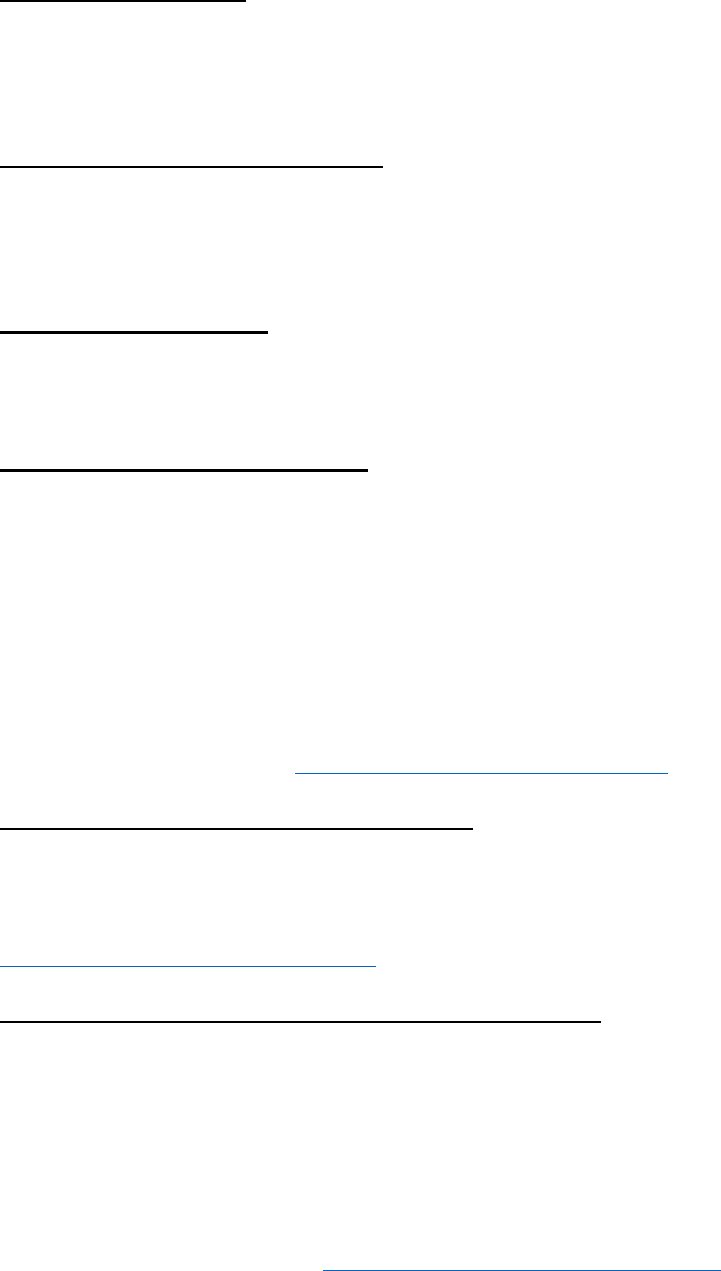
7
1. Educational Leadership
The Educational Leadership and Policy program generates scholarship that advances
understanding of and approaches to leadership in K-12 schools, higher education, and
learning organizations including New York State certification programs for school and
building leaders.
2. Counseling and Human Development
The Counseling and Human Development program generates new knowledge to support
well-being and growth across the lifespan among individuals, families, and communities. The
program develops and advances school and mental health counselors, behavior analysts,
counselor educators, researchers, and change agents in community and healthcare contexts.
3. Teaching and Curriculum
Acting as and preparing scholars of teaching, curriculum, and change, the Teaching and
Curriculum program prepares researchers, teachers and curricular leaders for K12 schools
and other educational settings, including New York State certification.
4. Center for Disability and Education
Started in 2008, the CDE aims to improve transition and access for students with disabilities
in both P-12 and higher education settings. The CDE’s Director and Assistant Director work
with families, local agencies, school districts, and colleges in three major areas: (1)
Transition; (2) Inclusive Higher Education in New York State; and (3) National
Accreditation. The CDE Director is chair of the Accreditation Workgroup for the National
Coordinating Center at Think College at the University of Massachusetts Boston, which
recently launched a new accrediting agency for inclusive postsecondary programs for
students with intellectual disabilities called the Inclusive Higher Education Accreditation
Council. The CDE’s work has been supported by the private B. Thomas Golisano
Foundation, the U.S. Department of Education, and the New York State Development
Disabilities Planning Council. https://www.rochester.edu/warner/cde/
5. Center for Learning in the Digital Age (LiDA)
LiDA’s mission is “transforming education by leveraging digital technologies”. LiDA works
to meet this mission through research, supporting innovations in collaboration with
educational institutions, preparing educators to leverage technology, and acting as a catalyst
and convener for dialogue and collaborations around LiDA-related issues.
https://www.rochester.edu/warner/lida/
6. Center for Professional Development & Education Reform
The Center aims to strengthen the P-20 education system in response to local and regional
needs through initiatives in four main areas: (1) K-12 STEM Teacher Professional Learning;
(2) K-12 Leadership and Organization Development; (3) P-20 Program Evaluation; and (4)
STEM Teacher Leader Development. Within these areas, Warner faculty and staff lead
multiple initiatives, such as professional learning institutes, teaching labs, content- and
leadership-based coaching, and school and district capacity building, to support districts’,
schools’ and higher education institutions’ efforts to advance teaching and learning. The
Center’s work has been supported by a number of grants from the National Science
Foundation and New York State. https://www.rochester.edu/warner/center/

8
7. Center for Urban Education Success (CUES)
CUES’ work focuses on conducting research and leading community initiatives and outreach
to inform the UR’s work at East High School (see below) and urban schools more broadly.
CUES also serves as a clearinghouse of research, practitioner briefs, and other resources that
identify best practices to support meaningful improvement in urban education. CUES
sponsors multiple events each year to bring together stakeholders to learn about education
topics of interest to our local and regional communities. CUES has been supported by
funding from two long-time UR supporters and the private Konar Foundation.
https://www.rochester.edu/warner/cues/
III. FACULTY APPOINTMENTS, REAPPOINTMENTS, & PROMOTION
A. FACULTY
Accomplishing the Warner School’s mission translates into the faculty roles and
responsibilities in the areas of Research and Scholarship, Teaching, Practice toward
improving educational policies and practices, and Service. All Warner faculty are expected to
participate in the activities described below, in ways and amounts consistent with their
appointments, abilities and interests. While efforts of these responsibilities will vary by
faculty member, examples of this work are included below.
Research and Scholarship:
1. Engaging in research that creates new theories, explanations, and understandings
about human development, counseling, education, educational institutions, and
education policy.
2. Analyzing and synthesizing research for research audiences.
3. Disseminating their research results to audiences (mainly through articles in peer-
reviewed research journals and books).
4. Evaluating/studying the effects of innovative policies and practices to identify and
refine best policies and practices and make their connection to existing theories more
explicit.
5. Disseminating the results of studies of innovative policies and practices to peers and
practitioner and policymaking audiences (through outlets that may include peer-
reviewed practitioner journals, books, reports, presentations, videos, and other
multimedia materials).
6. Disseminating existing research results to practitioner and policymaking audiences
(through outlets that may include peer-reviewed practitioner journals, books, reports,
presentations, videos, and other multimedia materials).
7. Contributing to identifying questions and issues worth researching because of their
potential impact on policies and practices.
Teaching:
1. Preparing entry-level practitioners (master’s and certification students) in the fields of
education, counseling, and human development – involves teaching courses,
organizing and supervising internships, conducting admissions interviews and
application evaluations, advising and supervising independent studies and theses.
2. Preparing advanced practitioners (EdD students) – involves teaching courses,
supervising field-based projects, conducting admissions interviews and application
9
evaluations, advising, supervising independent studies, and mentoring EdD
dissertations (as a committee member or chair).
3. Preparing researchers (PhD students) – involves teaching courses, organizing and
supervising research apprenticeships, participating in admissions activities, advising,
supervising independent studies, and mentoring PhD dissertations (as a committee
member or chair).
Practice toward improving educational policies and practices:
1. Developing and/or modeling exemplary practices through one’s practice (e.g.,
through ongoing practice as a teacher/administrator/counselor/etc. or as an educator/
professional development provider/program evaluator).
2. Empowering other practitioners to improve their practices (e.g., by offering specific
professional development opportunities, engaging in one-on-one collaborations with
practitioners, and conducting program evaluations).
3. Participating in projects to develop and/or implement innovative practices and
policies (e.g., reform projects supported by grants).
4. Participating in policymaking.
Service:
1. To the institution:
a. Contributing, as needed and appropriate, to various administrative aspects of
the Warner School life and functions (e.g., student recruitment and
admissions; doctoral, master’s, and certificate program management; and
specific initiatives, such as community outreach and university-based strategic
collaborations, etc.). This includes managing educational programs (e.g.,
participating in their maintenance, review, improvement, and accreditation).
b. Participating in Warner School and University governance (e.g., in the
program area and faculty meetings, as a member of standing committees and
task forces, as a Faculty Senator or committee member).
c. Assuming specific administrative responsibilities and positions (e.g., program
director, chair, associate dean; organizing and overseeing specific student
services), in some cases, with additional compensation or release of teaching
time.
2. To the profession:
a. Participating in professional organizations (e.g., serving as a member or
officer, serving on specific committees/task forces, and participating in
meetings).
b. Reviewing conference proposals, journal article manuscripts, and grant
proposals; serving as journal editors.
c. Organizing conferences and similar events.
d. Engaging in advocacy and change efforts.

10
1. Definitions of Faculty Categories
a. Tenure-Track Faculty
Full-time faculty with the title of instructor, assistant, associate, or full professor whose
primary focus is producing new knowledge through research disseminated through
publications, mentoring doctoral students, and supporting their research. Tenure-track
faculty engage in high-quality teaching and service to the Warner School and the
University of Rochester.
b. Clinical Faculty
Clinical faculty with the title of instructor, assistant, associate, or full professor, perform
important teaching, advising, supervision, research, and service functions needed to
pursue the School’s mission. Clinical faculty can be full or part-time positions. These
positions are for fixed terms that are renewable with a review of performance and
alignment with School needs. Clinical faculty engage in high-quality teaching,
scholarship and service to the Warner School and the University of Rochester.
c. Adjunct Faculty
Adjunct faculty are hired for specific and time-limited functions for less than 50% effort,
such as teaching a specific course in a given semester or supervising internships for a
given academic year. Their appointment term is usually for a semester or academic
year, although it may be renewed. Their assignments may include advising Warner
School students. With the approval of the Warner Associate Dean for Graduate Studies
and the University Dean of Graduate Studies, service on doctoral committees is
occasionally permissible under the Graduate Council's current rules if the adjunct has the
appropriate qualifications. However, only adjunct professors whose appointments are
expected to continue for a sufficient period are eligible to serve in such a role. Adjunct
faculty may not serve as the primary dissertation advisor.
Adjunct faculty members are not involved in the governance of the Warner School.
They will not be involved in the review of matters on promotion, appointment, or
allocation of departmental resources with long-term implications.
d. Visiting Faculty
Visiting faculty primarily include visitors from other institutions who retain their status
at their home institution but can also signify faculty members hired for a limited period,
typically to fill in gaps created by faculty who are on leave or on grants; vacant faculty
positions, that are still needed and cannot immediately be filled; and experimental new
program expansions. Their appointment is typically for one year – or in rare cases, two
years – and can be made at the ranks of instructor, assistant professor, associate
professor, or full professor. This category of faculty should not be used for individuals
when prolonged appointments (two years or more) are anticipated. Visiting faculty are
not involved in the governance of the Warner School. They may attend faculty meetings
and program meetings as requested by the program chair.
According to the University of Rochester Faculty Handbook, the authority required for
visiting appointments is the same as for the related regular appointments. For instance,
visiting assistant professors can be appointed on the authority of a dean (provided that
the appointment is within the academic and financial plans previously agreed to by the
dean and the provost), but visiting associate professors can be appointed only with the

11
approval of the provost and senior vice president and vice provost for health affairs
(Medical Center cases only), or president and the Executive Committee of the Board of
Trustees.
e. Research Faculty Associate
Faculty who are hired with specific duties in conjunction with a specific project (usually
externally funded). Their appointment is linked to the duration of the project. They are
not involved in the governance of the Warner School.
f. Lecturer
Teaching faculty associates are hired to perform only specific duties in the preparation
of entry-level practitioners. Their appointment is typically a full time, annual position,
and it can be renewed. They are not involved in the governance of the Warner School.
g. Joint (Secondary) Appointments
Joint (secondary) appointments are given when a faculty member is recognized as
having expertise in multiple disciplines and can directly contribute to the intellectual
environment of the School. This typically happens when an individual first joins the
University but can be initiated later by the Dean or recommended by a program chair.
Secondary appointments do not carry tenure unless specifically agreed to by both units
in advance. Decisions for joint and secondary appointments are made by the Deans of
the two schools, in consultation with appropriate faculty.
When evaluating the reappointment, promotion or tenure of a faculty member with a joint
appointment or affiliation in another department or unit of the University, it is necessary
for the chair of the faculty member's home department to formally request feedback from
the head of the secondary unit. This feedback should be included as a crucial component
of the documentation submitted to the Dean or Provost for consideration. Faculty with
joint appointments are not involved in the governance of the Warner School.
h. Emeritus Status
According to the University of Rochester Faculty Handbook, “When an individual
holding the rank of assistant, associate or full professor retires, they will be eligible for
consideration for the title “emeritus professor,” “emerita professor,” “emeritum
professor,” or “emeritx professor.”
The formal action for such a designation follows the usual channels for changes in title;
it originates in the department and goes through the dean’s office to the provost.
Approval by the Executive Committee of the Board of Trustees is required. Conditional
on this approval, the choice of a specific title is to be determined by the individual who
will hold the title” (2022, p. 37).
2. Principles and Processes for Changing Faculty Track
As some faculty members may realize early in their career that their interests and strengths
may be better aligned with a different kind of position or track, we want to ensure that our
system allows flexibility to accommodate such changes, provided that the change is in the
interest of both the individual faculty and the Warner School.
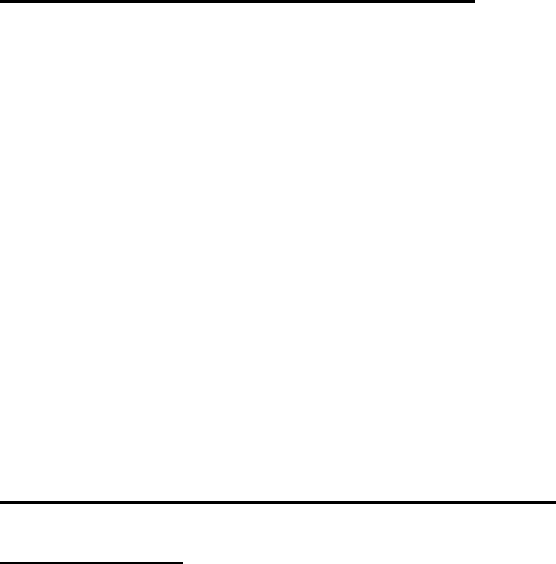
12
Current faculty in a tenure-track position or clinical position interested in applying for a new
publicly posted opening in the other track are welcome to participate in the search without
risk of losing their current position, in the event they are not selected.
3. Process for Deciding on New Faculty Positions
The Dean, with the approval of the Provost, will make final decisions about faculty positions
– that is, whether a position will be continued and/or a new one created, the definition of the
position (e.g., its field of specialization and scope), and whether it will be tenure-track or
non-tenure-track. This decision will continue to be made in consultation with the faculty to
ensure that their knowledge and input can be taken into full consideration in making these
decisions. The following process addresses this goal:
1. A meeting open to all faculty will be held at least once a year to discuss current
faculty lines, needs for new faculty, and plans for adding new faculty lines. Written
comments will be solicited from faculty members who may be unable to attend the
meeting.
2. Whenever there is the need and/or opportunity to define a new faculty position, a
proposal for that specific position (including its “field of specialization” and type of
faculty position) will be developed by the Dean in consultation with the program
chairs and faculty, and then presented to the Provost for approval.
B. INITIAL APPOINTMENTS & CONTRACTS
1. Hiring Guidelines
The faculty recruitment process begins with the Dean appointing a search committee to
oversee and manage the hiring process for each open position. The search committee is
typically comprised of the program chair/director of the unit where the position will mainly
be located, another faculty member from that unit, and a faculty member from a different
unit. The search committee members are selected from Warner faculty, who can best inform
the selection for that position. The search committee chair consults with the Office of Equity
and Inclusion and Faculty Diversity Officers to discuss recruitment assistance, position
postings, and mechanisms to avoid bias. All search committee members are required to
complete the “Managing Bias” training in MyPath.
The search committee will typically hold two interview sessions: 1) a first round of
qualifying interviews or Zoom meetings and 2) a final round of interviews with selected
finalist candidates. Final round interviews may be conducted as in-person interviews on
campus or as a remote interview day. The final round interview day will consist of meetings
with various members of Warner leadership, faculty, staff, and students. Additionally, tenure-
track candidates will present a research colloquium open to faculty, staff, all Warner doctoral
students, and master’s and certificate students in the academic program area for which they
are applying. Clinical-track candidates will present a colloquium on their professional
experiences and expertise.
After interviews are conducted, all faculty are invited to attend a meeting with the search
committee and Dean to provide their feedback and evaluation of the finalist candidates and
make their recommendation to the Dean. All aspects of the hiring process should be kept
confidential by all participants.

13
Consistent with current university-wide regulations, hiring decisions will be made by the
Dean in consultation with the unit faculty and with the Provost’s approval. Candidates must
hold a doctorate to be hired as assistant, associate, and full professors, but not for instructors
who must hold at least a master’s degree or be enrolled in a doctoral program. The process
outlined above is recommended practice. Opportunistic hires, as well as spousal hires, can
be streamlined at the discretion of the Dean and with full knowledge by the faculty.
Previous work and accomplishments of all faculty hires can be applied to tenure and
promotion at the Warner School as negotiated with the Dean at the time of hire.
2. Process for Hiring Associate and Full Professors with Tenure from Outside the
University with Tenure
The Warner School occasionally conducts open rank searches to hire tenure-track faculty at
the associate or full professor levels. To attract the best candidates for these senior and mid-
level positions, it may be necessary to offer appointments with tenure.
Warner School faculty search committees are assigned the responsibility of identifying and
initially evaluating candidates who apply at the associate or full professor level and,
therefore, would want to be hired, eligible for tenure, at their initial appointment. After a
candidate is recommended by a search committee, the Dean will assign an ad hoc tenure
review committee consisting of two Warner tenured faculty members (at rank or above) from
the candidate’s potential program area and one Warner tenured faculty member (at rank or
above) from outside the program area. If too few tenured faculty are at rank or above inside
the candidate’s program area, the Warner School will solicit the required number of tenured
committee members from outside the home program area. Candidates will then be contacted
by the search committee and asked to submit materials to the Dean documenting their
credentials for tenure.
Consistent with the Warner School’s tenure review process, a tenure review committee will
be appointed by the Dean and solicit input from all tenured faculty at rank or above after
receiving the materials.
Individuals applying for a position that is eligible for initial appointment with tenure are
required to submit materials documenting such credentials upon application. Individuals who
apply in an open-rank search and are identified as potentially tenurable during the review
process are asked to submit those materials upon invitation.
In most cases, the tenure review committee uses the same process in evaluating these cases
that it uses in internal promotion and tenure cases. This process includes 1) a detailed reading
and evaluation of the candidate’s published research and work in progress, 2) a review of
evidence on the candidate’s past teaching performance and 3) a solicitation for input from all
Warner faculty members at or above the candidate’s proposed rank and tenure status.
The UR allows schools to forgo the solicitation of external review letters when the candidate
is tenured at a comparable institution of higher education to expedite the process. As a
general rule, however, the tenure review committee solicits approximately 12 external
evaluation letters from prominent scholars in all cases. The tenure review committee
maintains the option to forgo the solicitation of outside letters in special cases. One
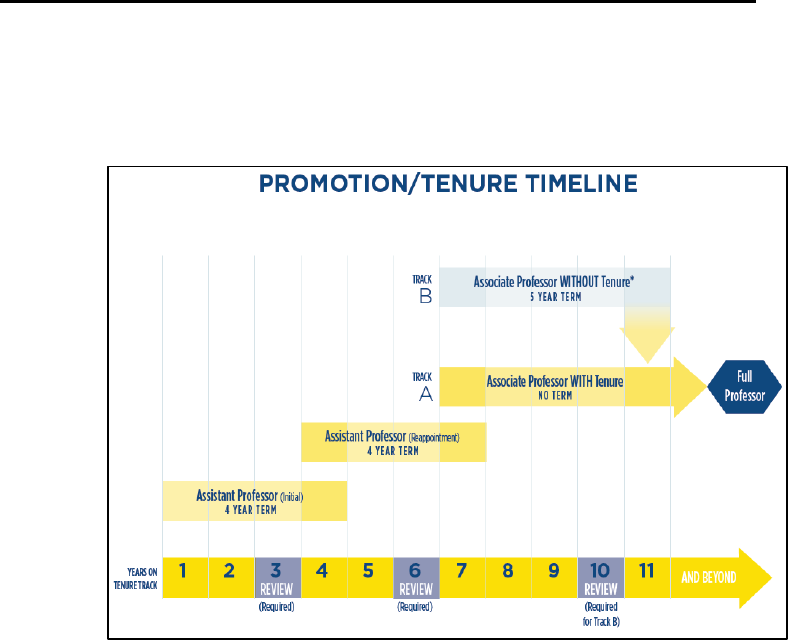
14
prominent example is when it is asked to consider tenured Full Professor appointments for
very high-level administrative appointments, which have resulted from independent,
thorough search processes (e.g., the Dean of the School, or the President of the University).
In these cases, the Dean will review the candidate’s case to see if their academic
qualifications match the standard before an offer with tenure is made. This would be done in
conjunction and under the approval and oversight of the Provost Office.
The UR permits tenured offers to untenured faculty who have commensurate credentials to
warrant tenure at the UR and comparable institutions of higher education. To qualify for
tenure, a candidate must be nationally recognized as a major authority in their field. The
tenure review committee uses the following pieces of evidence to determine whether a
candidate meets the tenure standards of the UR and comparable institutions:
• Peer-reviewed publications in high quality journals in the relevant field.
• Citations.
• Evaluation of the candidate’s research after careful reading and discussion of
published papers and work in progress.
• External evaluation letters from prominent scholars in the field (approximately 12 are
solicited).
• Input from the faculty search committee (consisting of faculty from the relevant area)
and other tenured Warner faculty members who responded to the tenure review
committee’s request for input on the case.
C. TENURE-TRACK FACULTY: TENURE AND PROMOTION
This section provides important information about the process for tenure and promotion for
tenure-track faculty, beginning by outlining the process for reappointment after the three-year
review, followed by the process for tenure and promotion to associate professor and full
professor.

15
Note 1: “Lengths of service described below apply to full-time, tenure-track faculty and are
maximal and not mandatory. An individual may be recommended for promotion and tenure
at any time that the chair and the dean are persuaded that it is in the University’s interest to
do so” (Faculty Handbook 2022, Section IV.A.I).
Note 2:
Specific policies on postponement of promotion or tenure reviews are described
in Sections IV.A.3 and IV.E. 5 in the Faculty Handbook 2022.
In all promotion and reappointment cases, the Warner community, is committed to the vision
and values of the University, including
equity, leadership, integrity, openness, respect, and
accountability. We support the
University’s statement: “Together, we will set the highest
standards for how we treat
each other to ensure our community is welcoming to all and is a
place where all can thrive.” As such, when considering a case for promotion or
reappointment, the school may consider reports by students, faculty, staff or others of
behaviors by the candidate that are inconsistent with Warner and University values. Reports
that allege violation of specific policies, such as the University’s Policy Against
Discrimination, Harassment and Employment/Services Practices (PADH), for example, will
not be taken into account until formal procedures that exist for investigating such complaints
are concluded (the promotion case may be delayed allowing time for this to occur). Other
complaints/reports without formal resolution procedures will be shared with the candidate
early in the process to allow them to respond or share additional considerations, while
maintaining confidentiality for those who have expressed concerns.
1. Reappointment of Tenure-Track Faculty
Procedure for Reappointment within Rank for Assistant Professors in Tenure Track
The review for reappointment, which typically happens at the beginning of the third year of
the appointment, allows an assistant professor to engage in the process of self and peer
evaluation focused on their research productivity, quality of contributions, and career goals.
As the process is similar to that for promotion and tenure decisions (with the exception of
external letters of reference), it can help an assistant professor understand the nature and
requirements of these reviews. Decisions for reappointment of assistant professors are made
by the Dean with input from the faculty. The review process involves the below steps.
Candidates will be notified by the Dean’s Office several months before the case is to be
submitted. The faculty member prepares their case, which entails providing electronic copies
of the following documents:
• Updated CV, listing all published and in-process publications, conference
presentations, grants, service to the school, university, and profession, community
engagement, and other relevant information.
• Personal Statement. See Appendix A for tenure promotion guidelines for preparing
the personal statement.
• Course Syllabi (for all the courses taught in the last three years, plus others at the
discretion of the candidate).
• Selection of no more than 5-6 samples of best research products (can include
manuscripts submitted for publication at the discretion of the candidate).
• Copies of all publications to date.
• Manuscripts submitted for publication (at the discretion of the candidate)
16
• Other selected artifacts referred to in the Personal Statement (to be included if needed
at the discretion of the candidate).
• Any additional artifacts when deemed essential to evaluate the candidate’s teaching
performance.
Independently, the Dean’s Office will gather the following documentation:
• Copies of course evaluations for all the candidate’s courses taught at Warner
• Summary of teaching evaluations for all courses
• Letters to be solicited and collected by the Dean’s Office from:
o Warner faculty other than tenured faculty
o Warner staff
o Students (current advisees and students in the four most recent courses the
candidate has completed teaching)
An ad hoc reappointment committee is appointed to manage the reappointment process and
provide a written recommendation to the Dean. The reappointment committee is typically
chaired by program chair (regardless of rank) and comprises three Warner tenured faculty
members, including, whenever possible, two faculty from the candidate’s program area and
one person from a different program area. What transpires in meetings of the ad hoc
committee shall be kept confidential.
Additional input is sought through a meeting led by the ad hoc reappointment committee, to
which all tenured and clinical faculty are invited, to discuss the candidate’s work and
contributions to the Warner School, University, and the profession. All discussions in this
meeting shall be kept confidential.
All tenured faculty members are expected to write an evaluation of the case to the
reappointment committee and the Dean, stating their recommendation about reappointment,
including suggested steps the candidate should take to make improvements. Ad hoc
committee members do not need to send a separate individual letter of evaluation to the
Dean. If any faculty member requests confidentiality for their letter, the Dean will not
forward it to the reappointment committee.
Based on the totality of the information collected, the reappointment committee will prepare
a written recommendation to the Dean.
Based on the recommendations of the faculty members and the ad hoc promotion committee,
as well as their own analysis of the case, the Dean will decide whether the candidate should
be reappointed.
If the decision is negative, the Dean will inform the Provost in writing of the negative
decision and the rationale (providing documentation and all letters of evaluation received)
and also directly communicate the decision to the candidate as soon as possible, along with
an explanation of the reasons for the decision. The candidate has the right to grieve the
decision if dissatisfied with the process or decision, as stipulated in the University of
Rochester Faculty Handbook, p.38.

17
2. Promotion to Associate Professor with Tenure
Assistant professors in the tenure track must be reviewed for promotion with or without
tenure no later than the sixth year of their appointment in rank, so that notification of intent
to promote (or not to promote) may be issued no later than one year before their
appointment as assistant professor expires. If the candidate’s program chair is not in a
tenured position, the Dean will appoint a tenured professor to act as the candidate’s mentor
and champion through this process.
The principal factors considered for tenure promotion cases are teaching, scholarly work, and
service to the department, school, University, profession, and community. Criteria for
promotion can be found in the University of Rochester Faculty Handbook.
The tenure process typically takes eight to nine months, even when keeping to a “strict”
timeline. It is also important to take into consideration that there is a time limit for tenure
decisions – that is, a tenure-track assistant professor needs to be informed of whether they
will be promoted to associate professor with or without tenure by the end of their sixth year
of appointment at that rank (unless officially extended because of leaves or other special
circumstances). The Provost’s Office has a deadline of February 1 to communicate which
tenure cases will be presented for review and of March 1 for presenting complete tenure
cases that need to be assigned to an ad hoc committee for review.
Assistant professors are encouraged in their sixth year to present their materials before the
deadline of September 1 to ensure that the process will be completed timely, even if some
unexpected “snags” were to occur.
Candidates will be notified by the Dean’s Office several months before the case submission
deadline. The faculty member prepares their case, which includes electronic copies of the
following documents:
• Updated CV, listing all published and in-process publications, conference
presentations, grants, service to the school, university, and profession, community
engagement, and other relevant information.
• Personal Statement.
• Course Syllabi (for all the courses taught in the last three years, plus others at the
discretion of the candidate).
• Selection of no more than 5-6 samples of best research products (can include
manuscripts submitted for publication at the discretion of the candidate).
• Copies of all publications to date.
• Manuscripts submitted for publication (at the discretion of the candidate)
• Other selected artifacts referred to in the Personal Statement (to be included if needed
at the discretion of the candidate).
• Any additional artifacts when deemed essential to evaluate the candidate’s teaching
performance.
• In addition, the candidate will provide:
o A list of five to six experts in the field that could serve as external referees. It
is a common practice, but not a requirement for a candidate to verify external
letter writers’ willingness to perform this role before putting their names on
the list.

18
List of any experts in the candidate’s field whom they do not want to
have contacted and why, to avoid biases.
o A list of professionals in the university and local community that could
provide information about the candidate’s work and its impact (no more than
20).
o A list of 10 to 12 current students and alumni who could comment on the
candidate’s teaching and advising.
Independently, the following documentation will be gathered at this point:
• Copies of course evaluations for all the candidate’s courses taught at Warner
• Summary of teaching evaluations for all courses
• Letters to be solicited and collected by the Dean’s Office from:
o Warner faculty other than tenured faculty
o Warner staff
o Students (current advisees and students in the four most recent courses the
candidate has completed teaching)
Only CV, personal statement, course syllabi, best research products, manuscripts, additional
artifacts, and course evaluation summary will be made available for all tenured faculty, who
are able to review the materials in a confidential electronic folder on the University’s
Blackboard platform. The Dean, Provost, and the ad hoc tenure committees appointed by the
Dean and Provost, respectively, will be provided with all documents. Only CV, personal
statement, and best research products will be sent to external referees. Course evaluations
will be shared only with the ad hoc committee in charge of the case. Letters solicited and
collected by the dean’s office will be shared with the ad hoc committee and the Dean, who
will provide summaries to all appropriate faculty.
An ad hoc reappointment committee is convened by the Dean to manage the promotion
process and provide a written recommendation to the Dean. The promotion committee
comprises three Warner tenured faculty members, including, when possible, two faculty from
the candidate’s program area and one person from a different program area. Discussions of
the ad hoc committee shall be kept confidential.
Warner tenured faculty are asked to examine a tenure-track assistant professor’s case for
promotion to associate professor and assess, based on the information available to them,
whether:
• The candidate’s chances for tenure are good, and therefore the Warner School should
seek outside letters from expert referees to support this evaluation.
• The chances for tenure are not good, and the Warner School lacks compelling reasons
to consider the case for promotion to associate professor without tenure; therefore, the
case should be dismissed without seeking outside letters. In this case, the ad hoc
committee should clearly document its reasons for withholding the recommendation
to seek external letters.
This intermediate step exists because external reviews are a considerable imposition to
colleagues outside the University; thus, it is common practice at research universities for
reviews to be sought only after the tenured faculty has determined that a candidate’s chances
for promotion are good.
19
An initial review of the candidate’s case is held in a meeting of tenured faculty called by the
Dean and led by the promotion committee, in which participants discuss and clarify the
options, criteria, and process for tenure cases; introduce and review all the documentation
currently available on the case; and share relevant information that might not have been
included in the documentation provided online. Discussions of this meeting shall be kept
confidential.
After time to review the candidate’s dossier, the tenured faculty attend a second meeting
prepared to share their evaluation of the case and discuss it based on conversations with
colleagues. By the end of the second meeting, each tenured faculty member is expected to
make an individual recommendation about whether the case should move forward (unless the
Dean concludes that there are compelling reasons to gather additional evidence before
coming to a recommendation).
Based on the tenured faculty members’ recommendations and analysis of the case, the Dean
makes a final decision about which of the two options will be followed.
If the decision is not to seek outside letters, the Dean will:
• Request each tenured faculty member – and possibly the Warner ad hoc committee –
to provide a written evaluation of the case.
• Inform the Provost in writing of the negative decision and its rationale, providing a
copy of the case documentation (including CV, personal statement, selection of best
work, course syllabi, additional artifacts, and the letters of the tenured faculty).
• Directly communicate the decision to the candidate as soon as possible.
If dissatisfied with the decision, the candidate has the right to bring a grievance according to
the University of Rochester Faculty Handbook.
If the decision is to seek outside letters, the Dean and the Warner ad hoc promotion
committee compile a list of experts who will be asked to review the case. To identify a
diverse set of referees who are qualified to evaluate the quality of the candidate’s work and
its impact on their field, Warner ad hoc committees draw on their knowledge of key scholars
in the candidate’s field and may consult with experts in the candidate’s field. Ideally, these
referees are at the rank of associate professor or above in peer institutions or nationally
recognized programs in the candidate’s field. As indicated in the University of Rochester
Faculty Handbook, the Provost expects at least a dozen outside letters to be solicited, of
which at least three should be “from persons that are not closely connected personally to the
candidate.” Of the list of five to six names the candidate has supplied, if all are eligible, we
invite no more than six of the experts identified by the candidate. The Warner ad hoc
promotion committee and the Dean then identify an additional list of outside reviewers, in
this case, 10 to 12 names, as fewer than 50% of the referees contacted do the review by the
stated deadline.
All referees will initially receive a written request and the candidate’s CV. After agreeing to
review the case, the referee will receive a detailed letter articulating the process, along with a
copy of the candidates CV, personal statement, and best research products.
Once a sufficient number of outside letters has been received, each tenured faculty member is
asked to do a second evaluation of the case informed by the information provided by the
20
external reviews. A meeting of the tenured faculty is then called to share and discuss their
individual evaluations and recommendations about whether the candidate should be
promoted to associate professor with tenure. Discussions of this meeting shall be kept
confidential.
Following this meeting, each faculty member has a few days to provide their final evaluation
and recommendation in writing. Each faculty member sends this written evaluation to the
Dean and is encouraged but not required to copy the ad hoc promotion committee. The
promotion committee is asked to provide their summary of the case and their
recommendation to the Dean in writing. A written report signed by all committee members
may substitute for a letter from each of those serving on the ad hoc committee.
Based on the recommendations of the faculty and the ad hoc promotion committee, as well as
their own analysis of the case, the Dean will make a decision about whether the case should
be recommended to the Provost for promotion to associate professor.
If the decision is negative, the Dean will inform the Provost in writing of the negative
decision and its rationale (providing as documentation the candidates CV, personal
statement, course syllabi, best research products, manuscripts, additional artifacts and all
letters of evaluation received) and directly communicate the decision to the candidate as soon
as possible. Once again, the candidate has the right to bring a grievance if they are
dissatisfied with the process, according to the University of Rochester Faculty Handbook. No
other faculty members should discuss this case with the candidate before the Dean has
communicated this information.
If the Dean decides the case should be recommended for tenure with promotion, the Dean
will articulate this recommendation and its rationale in writing to the Provost and forward
copies of all documentation to the Provost’s Office.
Upon receipt of the above materials from the Dean, the Provost will review these materials to
ensure that the case is complete and request additional documentation from the Dean if
needed.
After the Provost deems the case is ready, it will be sent for review to the university-wide
promotion committee (if the case is for promotion to associate professor without tenure) or to
an ad hoc committee if the case is for promotion to associate professor with tenure. As either
of these committees reviews the case, they have the prerogative to request additional
documentation and/or to seek the opinion of additional outside expert referees. The
committee examining the case will then send its written evaluation and recommendation for
the case to the Provost.
Based on the recommendation of the university-level committee and their own review of the
case, the Provost then makes the final recommendation to the Board of Trustees about
whether promotion should be granted, and the Board of Trustees makes their final
deliberation. The Provost will communicate the decision directly to the candidate or allow
the Dean to convey this information.

21
3. Promotion to Associate Professor Without Tenure
This rank can be used as an early promotion for particularly promising cases or as an initial
appointment of candidates with experience beyond the level of an assistant professor. In
some cases, fields or schools, the material to support tenure develops at a pace such that the
criteria for tenure previously stated are not met within the five years preceding the initiation
of the review process. In these rare cases, and when the expectations are good that the criteria
will be met within a few years (fewer than five), promotion to associate professor without
tenure may be deemed appropriate.
For information on promotion to the rank of Associate Professor without Tenure, see Section
IV.A.3 in the
Faculty Handbook 2022.
4. Promotion to Full Professor
The University of Rochester Faculty Handbook provides the
following statement on
the criteria for promotion to full professor for tenure-track
faculty:
“This promotion may be awarded when a tenured individual has continued to grow in
intellectual leadership and in teaching excellence and has in this way become a senior
authority in the country, a valuable teacher, and an important contributor to the School or
University or both” (Faculty Handbook 2022, p. 28).
The statement purposively gives considerable leeway to full professors to interpret these
general criteria, taking into consideration each school’s unique values and missions. At
the
Warner School, the three key criteria are interpreted in the following ways:
A Senior Authority
This criterion will ultimately be tested through referee letters
solicited from nationally- and
internationally-recognized scholars at the full professor level
in the candidate’s field.
Before soliciting referee letters, the
candidate for full professor will need to have
demonstrated a sufficient level of sustained engagement and productivity in scholarship or
is recognized as a senior authority in a particular field, while recognizing that the nature of
such scholarship may vary
significantly. For example, while applying for and receiving
funding from grants is not required, grants can, directly and indirectly, strengthen a faculty
member’s case in that grant awards: (1) indicate that a faculty member’s research or
practice is valued by
external groups; (2) can provide the resources and time that enable a
faculty member to
conduct research or engage in practices that have an impact; and/or (3)
may benefit the larger
community (whether local, regional/state, national, or global).
Research-based projects in
the community and instances of “engaged scholarship” are
valued as well as traditionally focused research topics.
A Valuable Teacher
To be promoted to full professor, a candidate needs to have
a sustained record of being an
excellent course instructor, academic advisor, and sponsor
of doctoral dissertations and
master’s theses. The diversity of students and the size of faculty necessitates that full
professors advise/sponsor successfully a full range of
students, some of whose interests and
talents may vary from their own. The diversity of our
students and the size of our faculty
also necessitates that full professors demonstrate a
commitment to offering needed courses
when called upon. There is also the expectation that no major unresolved issues with

22
students will be outstanding at time of case review.
An Important Contributor to their Program, the School and the University
The
Warner School's success derives from our programs' collective successes. Therefore,
we regard a faculty member’s commitment and contribution to their
program’s operations,
the School, and the University as an important criterion. Such
contributions include but are
not limited to mentoring junior faculty, advising students,
initiating, developing and
stewarding programs, and helping with larger
University strategic efforts. Candidates
should have a demonstrated sustained record of
these contributions. While serving in
formal administrative positions is not required,
we will consider situations in which formal
and sustained service to the
School or University has limited opportunity or productivity in
the other two areas.
We consider all three criteria to be necessary conditions, and evidence of meeting each
standard must be evidenced throughout the course of a candidate’s associate professorship
(e.g.,
successful teaching or program commitment for a single year or two would not
suffice). We would not move a promotion case forward to seek external reviews if a
candidate does not meet our threshold in all three areas for a sustained period.
We subscribe to the University practice that there is no prescribed time for associate
professors to be considered for promotion to full professor. We expect this
time will vary
considerably. However, in most cases, it will likely take at least
six years after promotion to
associate professor to demonstrate the level of achievement
articulated in the criteria above.
Process for Reviewing Promotions to Full Professor
The Curriculum Vitae (CV) of all tenured associate professors will be reviewed at the end of
their third-year post promotion to provide an opportunity to provide feedback
on their
progress toward promotion to full professor. Subsequently, reviews will be
triggered by
associate professors who feel they have demonstrated sufficient
accomplishments and
contributions, as noted above, to be considered for full professor. To initiate a review, the
associate professor will submit a three-page narrative with
their CV at the time they submit
their faculty annual report toward the end of the academic year. The full-tenured
professors
will indicate whether the associate professor can proceed with the
promotion process. If the
candidate’s program chair is not in a tenured position, the Dean will appoint a tenured full
professor to act as the candidate’s mentor and champion through this process.
The procedure for promotion to full professor is the same as described in Promotion to
Associate Professor with Tenure section.
D. CLINICAL TRACK FACULTY
At the time of hiring, clinical faculty members should identify two primary areas from
among teaching, scholarship, and practice as their areas of focus. The expectations in terms
of what percentage of effort should be devoted to each area, along with service, will be
identified at the time of hiring. Subsequent changes in the definition of primary areas and/or
time distribution across areas must be approved by the Dean in consultation with the
chair/director of the program the faculty member is associated with and recorded in writing.
Clinical faculty are appointed for two- to five-year terms, as indicated in their initial contract
or at the moment of reappointment. The Dean conducts annual performance reviews in

23
consultation with the faculty member’s supervisor (e.g., the chair of the faculty member’s
program area and/or center director). If the annual review decision is not favorable the
faculty member will be expected to go through a reappointment review the following year to
ensure a thorough review including input from the faculty before a final decision to terminate
the contract would be made. Clinical faculty will be given at least one year notice before
their contract is terminated unless they have violated a major university rule that would
warrant immediate termination
Given that tenure is not available to clinical faculty and part-time is an option, the notion of
“maximum time at rank” is not applicable in the case of clinical faculty.
1. Criteria for Hiring, Reappointing, and Promoting Clinical Faculty
Depending on their rank, the level at which a clinical faculty member is expected to perform
responsibilities varies, as summarized below:
• Instructors are expected to fulfill their assigned responsibilities satisfactorily with
some support.
• Assistant professors are expected to fulfill their assigned responsibilities
satisfactorily but independently.
• Associate professors are expected to fulfill their assigned responsibilities and
demonstrate and maintain “excellence” (as defined later in this section) satisfactorily
in their two primary areas of focus and service.
• Full professors are expected to fulfill their assigned responsibilities satisfactorily and
to demonstrate and maintain the following:
o “Outstanding performance with recognition beyond the local level” (as
defined below) in at least one of their primary areas of focus.
o At least “excellence” (as defined below) in their other primary area of focus.
o Outstanding contributions” (as defined below) in service.
Hiring, reappointment, and/or promotion at each rank will require an evaluation that these
expectations have been met. Criteria and indicators for evaluating “excellence” and
“outstanding performance” in the areas of Teaching, Academic Scholarship, Practice Toward
Improving Educational Policies and Practices, and Service are identified in Appendix B.
Relevant accomplishments achieved prior to employment at the Warner School or as part of
the clinical faculty member’s activities outside their Warner School appointment (e.g., part-
time clinical faculty members who are “practicing” or participating in other relevant
educational initiatives during their time not devoted to the Warner School) will be counted as
appropriate toward achievements in the areas of Practice, Academic Scholarship and/or
Service to the profession.
The thresholds established for hiring, promotion, and reappointment at each rank are no
different for part-time or full-time clinical faculty. However, it is to be expected that part-
time faculty will usually need more time than full-time faculty before they can achieve the
same thresholds. Length of service, by itself, is not a sufficient justification for promotion.

24
2. Reappointment of Clinical Faculty
Procedure for Reappointment within Rank for Assistant Professors in Clinical Track
For all clinical faculty members, a reappointment review will take place every three to five
years, at least one year before a contract is expected to expire. This reappointment review
requires the faculty member to prepare and submit a case for reappointment to be reviewed
and evaluated by faculty members, both tenured and clinical, at or above rank, with input
from the rest of the faculty. Below are details about the review process and the below steps
for the candidate.
Candidates will be notified by the Dean’s Office several months before the case is to be
submitted. The faculty member prepares their case, which entails providing electronic copies
of the following documents:
• Updated CV, listing all published and in-process publications, conference
presentations, grants, service to the school, university, and profession, community
engagement, and other relevant information.
• Personal Statement.
• Syllabi of 3-4 selected courses
• Selection of 2-5 publications, reports or other written documents that best illustrate
the nature and quality of your work and contributions.
• Copies of all publications to date and any other major unpublished documents that
illustrate your professional and scholarly contributions.
• Other selected artifacts referred to in the Personal Statement (to be included if needed
at the discretion of the candidate).
• Any additional artifacts when deemed essential to evaluate the candidate’s teaching
performance.
Independently, the following documentation will be gathered at this point:
• Copies of course evaluations for all the candidate’s courses taught at Warner
• Summary of teaching evaluations for all courses
• Letters to be solicited and collected by the Dean’s Office from:
o Warner faculty other than clinical faculty
o Warner staff
o Students (current advisees and students in the four most recent courses the
candidate has completed teaching)
An ad hoc reappointment committee will be appointed by the Dean to manage the
reappointment process and provide a written recommendation to the Dean. The
reappointment committee will comprise three Warner clinical faculty members at rank or
above and an additional tenure-track member at rank or above as a non-voting member.
Typically, the reappointment committee will be chaired by the program chair or center
director of the program or center with which the faculty member is affiliated and includes at
least one other faculty from that program or center and a faculty member from a different
program or center.

25
Additional input will be sought through a meeting led by the ad hoc reappointment
committee, to which all faculty at rank or above (clinical and tenure-track) are invited, to
discuss the candidate’s work and contributions to the Warner School, University, and
profession.
All clinical faculty members at rank and above are asked to write an evaluation of the case,
stating their recommendation to the reappointment committee and the Dean. Ad hoc
committee members do not need to send a separate individual letter of evaluation to the
Dean. NOTE: if any faculty member requests confidentiality, the Dean will not forward their
letter to the reappointment committee.
The Dean will review the case and the committee’s recommendation and will either:
• Make the final decision for assistant professors only, or
• Make a written recommendation to the Provost, who makes the final decision for
associate and full professors.
3. Promotion to Associate or Full Professor (Clinical)
Decisions about promotion to Clinical Associate and Full Professor will be made by the
Provost upon recommendation by the Dean. The process for the promotion of clinical faculty
at all ranks consists of the below.
Candidates will be notified by the Dean’s Office several months before the case is to be
submitted. The faculty member prepares their case, which entails providing electronic copies
of the following documents:
• Updated CV, listing all published and in-process publications, conference
presentations, grants, service to the school, university, and profession, community
engagement, and other relevant information.
• Personal Statement.
• Syllabi of 3-4 selected courses
• Selection of up to 5 publications, reports or other written documents that best
illustrate the nature and quality of your work and contributions.
• Copies of all publications to date and any other major unpublished documents that
illustrate your professional and scholarly contributions.
• Other selected artifacts referred to in the Personal Statement (to be included if needed
at the discretion of the candidate).
• Any additional artifacts when deemed essential to evaluate the candidate’s teaching
performance.
• In addition, the candidate will provide:
o A list of 3-4 experts in the field that could serve as external referees. It is a
common practice, but not a requirement for a candidate to verify external
letter writers’ willingness to perform this role before putting their names on
the list.
List of any experts in the candidate’s field whom they do not want to
have contacted and why, to avoid biases.
o A list of 12 to 20 community members/professionals in the field whom we
could ask for a letter of recommendation.
26
Independently, the following documentation will be gathered at this point:
• Copies of course evaluations for all the candidate’s courses taught at Warner
• Summary of teaching evaluations for all courses
• Letters to be solicited and collected by the Dean’s Office from:
o Warner faculty other than tenured faculty
o Warner staff
o Students (current advisees and students in the four most recent courses the
candidate has completed teaching)
An ad hoc promotion committee will be appointed by the Dean to manage the reappointment
process and provide a written recommendation to the Dean. The committee will comprise
three Warner clinical faculty members at rank or above and an additional tenure-track
member at rank or above as a non-voting member. Typically, the committee will be chaired
by the program chair or center director of the program or center with which the faculty
member is affiliated and include at least one other faculty from that program or center and a
faculty member from a different program or center.
An initial review of the candidate’s case will be held through a meeting called by the Dean
and led by the promotion committee to which all faculty at rank or above (clinical and
tenure-track) are invited to discuss the candidate’s case. Input from faculty will be solicited
by the Dean, including recommendations about whether to proceed with promotion.
Upon positive recommendation from the faculty at rank or above, the promotion committee
will select a number of experts in the faculty member’s field as external referees and solicit
their written evaluation of the case (this step is not required for promotion from instructor to
assistant professor). Six external referee evaluation letters are required for clinical promotion
cases – three letters from external referees identified by the promotion committee and three
letters from external referees identified by the candidate. In an effort to identify a diverse set
of referees who are qualified to evaluate the quality of the candidate’s work and its impact on
their field, we use our internal knowledge of key scholars in the candidate’s field and
occasionally consult with experts in the candidate’s field. External referees should either be
(1) faculty members at peer institutions and at rank or above who are clinical or teaching
faculty or demonstrate an understanding of the role of a clinical faculty member at a research
institution, or (2) recognized as national leaders in their field of practice. The candidate
should also inform the Dean if there are any scholars they think should not be asked to be a
referee and why, so we can avoid biases. Additionally, the candidate will compile a list of
eight to 12 community members who have worked with the candidate to solicit feedback.
After external referee letters are received, a final review of the candidate’s case is held
through a meeting led by the promotion committee to which all faculty at rank or above
(clinical and tenure-track) are invited to discuss the candidate’s work and contributions to the
Warner School.
All clinical faculty members at rank and above are invited to write their evaluation of the
case, stating their recommendation to the promotion committee and the Dean. (NOTE:
Faculty members writing these letters may request confidentiality, in which case the Dean
will not forward their letter to the promotion committee).

27
Based on all this information, the promotion committee prepares a written recommendation
for the Dean.
The Dean reviews the case and the committee’s recommendation and makes a written
recommendation to the Provost, who makes the final decision (not required for promotion
from instructor to assistant professor, where the Dean makes the final decision).
IV. FACULTY RESPONSIBILITIES
A. TEACHING AND ADVISING
1. Teaching Guidelines and Instructional Support
As a graduate school of education, we pride ourselves on providing students with
outstanding learning experiences in all their classes. While faculty are afforded a great
deal of autonomy when designing and implementing their pedagogical strategies,
adhering to the following guidelines helps ensure we meet New York State (NYS)
instruction:
• Faculty must have a course syllabus for each course that is distributed before or at
the first class meeting (see “Essential Elements for Warner School Syllabi” for
guidance) and it must be submitted to the Faculty Support Office via email at
• All reading assignments, videos, and other course materials should be available to
students via Blackboard with the exception of any required textbooks.
• Classes should start and end at their scheduled time.
• Instructors should make themselves available to students who have additional
course-related questions outside of class meeting times via regularly posted office
hours or by scheduling individual appointments.
• Assignments should be graded and returned promptly to students (within one
week, whenever possible). Assignments that are part of accreditation standards
must be graded in Taskstream.
• Final grades must be submitted on time using our online system.
a. Course Meeting Requirements
NYS requires that we provide a minimum of 50 contact hours for 14 weeks, plus an
exam week, with students for a 3-credit course.
This means instructors who cancel classes due to bad weather, illness, or other issues
must make up the class to fulfill NYS requirements. Should an instructor require to
cancel a class or switch an in-person class meeting to Zoom for a particular week,
instructors should alert students as soon as possible—this is best accomplished by
sending an email and making an announcement via Blackboard. Instructors should
they can post signs in your classes.
Definitions of in-person, hybrid and online education is informed by definitions for
NYS. Please see this link for current definitions. For federal definitions of distance

28
education/online courses, there are federal definitions e.g. IPEDS -
https://nces.ed.gov/ipeds/use-the-data/distance-education-in-ipeds.
When considering switching an in-person class to a Zoom meeting, it is important to
follow the University of Rochester Distance Education requirements, which currently
states that no more than 30% of class meetings can occur using distance education
technology.
b. Academic Year Calendar
Student Academic Year Calendar
c. Academic Policies
For more information on academic policies, please see the Academic Policies
webpage.
d. Copyright Policy
It is the instructor’s responsibility to verify that any duplication/scanning requests are
within the University of Rochester’s copyright policy guidelines. If you need further
guidance after reviewing the policy and considering the document’s intended use, you
can refer to the Fair Use Analysis Checklist. Should you request a
duplication/scanning project that is not within these guidelines, you are solely
responsible for any consequences, such as costs, disciplinary action, or otherwise.
e. Final Grades and Assessments
Instructors must enter final grades using the 'Instructor Access' tab in Blackboard
during the designated open grading times. The Warner School Registrar will send
detailed information about when the system is available for grading each term. If the
course you are teaching is one of the “core courses” in a AAQEP or CACREP
accredited program, you will also be expected to complete rubrics for all your main
assignments and to comply with relevant program-wide assessment and related
instruments (as related to you by the program chair). Assessments for your course are
available in Taskstream, accessed through Blackboard.
Please refer to the Online Grade Submission Instructions and Grading Scale
documents for assistance.
f. Syllabus Guidelines
Including these essential elements in our syllabi ensures that we meet University and
New York State Education Department accreditation guidelines. Please see the
Essential Elements for Warner School Syllabi.
g. Course Evaluations
Course evaluations allow us to assess the effectiveness of our instruction and to
continually improve upon our teaching. As a result, it is important that all students are
encouraged to complete the online course evaluations that are available in AEFIS.

29
Students receive notifications about the evaluations through Blackboard; however,
our experience has proven that they are much more likely to complete the evaluations
if instructors provide time during the last class meeting for students to complete them.
Students can access the link to complete evaluations in two ways: 1) Through the link
on their Blackboard course main page, or 2) By opening the email that AEFIS
automatically sends every three days until the evaluation period closes or the student
successfully submits the evaluation. Instructors will receive a notification when their
evaluations are available to be viewed, as well as directions on accessing them via
AEFIS. Course evaluations are also reviewed by program chairs and the Associate
Dean of Graduate Studies, and the results are shared with the Dean for consideration
in the Faculty's Annual Review meetings. Faculty members who receive course
evaluations that indicate room for improvement in teaching will be contacted by their
program chair or the Associate Dean of Graduate Studies to discuss the areas of
concern and to collaboratively develop strategies for improvement.
h. Classroom Access & Keys
All classrooms in LeChase Hall will always be locked. Classrooms will automatically
unlock 15 minutes before the start of every class and will remain unlocked for 15
minutes after every class has ended. Classrooms can be accessed by faculty at any
time by swiping their University ID cards outside each door.
i. Copy/Print/Scan Requests
Copy, print, and scan requests can be submitted to the Faculty Support Office via the
blank forms in the workroom on the fourth floor of LeChase Hall. Please complete
the form and leave the documents in the box, which will be returned to you as you
requested. Requests can also be sent via email to he[email protected].
j. Textbook Desk Copies & Textbooks for Students
To order a desk copy from the publisher, please email [email protected]
and include the course number and total student enrollment.
In addition to sharing your course-required texts with the Book Store, the library may
be able to obtain digital versions of your texts for access by your students. To begin
the process of obtaining digital versions of your textbooks, send inquiries
to [email protected] and copy Eileen Daly-Boas, the Warner School’s
librarian, and the librarians will follow up regarding digital access to your titles (if
they exist) for courses. You can then provide links to the digital resources in your
Blackboard course and your syllabus.
k. Library Pickup Requests & Returns
If you have requested an item to be held at the circulation desk and would like it
picked up for you, forward the notification to [email protected]. You must
have a current Faculty Authorization Form on file at the library. The authorization
form expires every year in September. Please use the bag in the 4th-floor workroom
for items that need to be returned to the library.

30
l. Office Supplies
Typical office supplies, such as pens, pencils, note pads, post-its, binder clips, paper
clips, etc., can be found in the 4th-floor workroom. You can help yourself to office
supplies during normal business hours. These drawers will be locked at the end of
each business day. Note: we do not reimburse for office supplies, and requests for
items not on the approved list of supplies will not be accommodated.
m. Parking Passes for Guests
If a guest is coming to campus for a presentation in your class, we can provide a
parking pass. Requests for parking passes should be sent directly to the Dean’s
Office: deansoffice@warner.rochester.edu. When possible, requests for parking
passes should be made 24 hours in advance. If requests are not made 24 hours in
advance, guests must stop at the Information Booth located on Wilson Blvd. for a
parking pass and directions on where to park on campus.
Driving directions can be found using Google Maps. Parking lots and LeChase Hall
can be found using the River Campus map.
n. Room Reservations & Course Schedule
Room reservations for meetings outside your regular class schedule can be requested
by emailing [email protected]. If you are working with staff on an event
or meeting, clarify who is making the room reservation. If you cancel any class
meeting times or make any adjustments to your normal class meeting times as shown
on the course schedule, please consult with and email student services before making
the change. To check room availability, go to: https://www.calendar.rochester.edu/.
2. Advising
The way in which faculty members approach and enact the advising role can be
powerfully consequential to students’ program completion as well as their feelings of
being supported and satisfied throughout the process. Program advisors are generally
students’ first faculty contacts when they enter the program. Advisors help students
define their program goals and chart courses of study; along with Student Services staff,
advisors ensure and verify that advisees have successfully completed all program
requirements prior to graduation. Advisors help students manage and adjust their program
trajectories and, ideally, network with other faculty, staff, and students at the school and
beyond; they support advisees in finding academic, research, and clinical opportunities
that align with their professional goals; and they assess advisees’ needs for guidance and
supervision accordingly.
The multiple advising activities, from initial enrollment through graduation, can be found
in the Advising Guidelines Document. However, there is some variability across our
program areas’ advising demands and practices, contingent on program structures and
cultures. In addition, there is variability across specific programs of study (e.g.,
certification programs versus general master’s degree programs), depending on course
and clinical requirements and prerequisites. Finally, advisors may need to exercise
discretion in consultation with Warner School leaders, if specific circumstances interfere

31
with a student enacting a program as planned. The core faculty advising roles and
responsibilities are listed below:
• Generating a Program of Study
• Checking Registrations and Confirming Continuous Enrollment/Academic
Progress
• Overseeing the Culminating Project
• Providing guidance on the Policy on Comprehensive Exam Registration and
Grading
• Completing Comprehensive Exam Grade Reporting
• Providing oversight for Dissertation Research
• Referring students to additional resources and support services as needed
3. Serving on Capstone Project Committees
The University requires that all master’s and doctoral students successfully complete
qualifying examinations and/or capstone projects to graduate. Assisting and mentoring
students through these examinations and capstone projects is an important responsibility
shared by all Warner School faculty; this includes sponsoring master’s thesis and
dissertations, overseeing masters’ comprehensive portfolios, serving on doctoral
comprehensive examinations and dissertation committees, and serving as outside chairs
on doctoral dissertation defenses. Faculty should speak regularly with their program
chairs to ensure they are engaging in the appropriate number of qualifying exams and
capstone projects relative to the needs of their program and the Warner School.
Each program area has developed its own guidelines for completing theses,
comprehensive examinations, and dissertations, several of which can be found at the
following website: https://www.warner.rochester.edu/students/matriculated/dissertation.
This site also includes additional resources to help students succeed in completing their
capstone projects, including guidelines on how to properly register for these experiences.
Faculty in each program area should review their guidelines regularly to ensure the
processes are current and accessible and that all program faculty are familiar with the
most recent processes.
It is important that faculty respond to students’ requests to serve on these committees in a
timely manner and provide students with feedback about the quality of their qualifying
exams and capstone projects within the timelines established in their respective program
guidelines (typically one to three weeks). In addition to serving on doctoral dissertation
committees, faculty are also required to serve as an “outside chair” to facilitate
dissertation proposal and final defenses, which the Associate Dean of Graduate Studies
assigns. Faculty can expect to serve as an outside chair two to four times yearly.
B. RESEARCH & SCHOLARSHIP
1. Expectations
As stated in our mission, “the Warner School faculty is committed to the production of
educational research and inquiry with the goal of improving our understanding of
significant educational issues and processes; addressing educational problems in an

32
informed and effective way; helping improve educational processes and institutions; and
enhancing the preparation of practitioners.” All Warner faculty are expected to contribute
to this core aspect of the School’s mission through pursuit of their own research and
scholarship and, as appropriate for their role, playing a role in the greater research and
scholarship endeavor. This might include dissemination of new knowledge through
academic or community-oriented channels, pursuing research funding, mentoring
doctoral students, collaborating with colleagues, and/or engaging with initiatives to
bolster the research impact, culture, and reputation of the Warner School.
2. Warner RSRB Application Submission Procedures
The University of Rochester has institutional review boards to review research proposed
to be conducted with human subjects. These boards, each with the title of Research
Subjects Review Board (RSRB), review research conducted or supported by the
University to determine that the rights and welfare of the human subjects are adequately
protected. The RSRB is guided by the ethical principles described in the Belmont Report
and by the regulations of the U.S. Food and Drug Administration (21 CFR 50 and 56) and
the U.S. Department of Health and Human Services (45 CFR 46). The University of
Rochester maintains an Assurance of Compliance with the Office for Human Research
Protection (OHRP).
Within the Warner School, an RSRB team supports faculty and students in the RSRB
review process. All faculty, staff, and student research (except for student research
conducted for class projects whose findings will not be shared beyond Warner) must go
questions.
Important Websites:
• Research Protocol Templates:
http://www.rochester.edu/ohsp/rsrb/docTemplates/protocolTemplates.html
• Consent Form Templates:
http://www.rochester.edu/ohsp/rsrb/docTemplates/consentFormTemplates.html
• Minimal Risk Certification (CITI Training):
http://www.rochester.edu/ohsp/education/certification/initialCertification.html
3. Course Buyout Policy
All faculty members who receive grant funding may discuss with their program chair and
the Dean the possibility of “buying out” of a course to devote additional time to grant-
funded projects.
4. Graduate Assistantships
Warner offers graduate assistantship opportunities to provide experiences that deepen and
enrich students’ understanding of the discipline and provide valuable professional
training. Assistantships are awarded to exceptional, full-time Warner PhD students
typically offered for four years. Depending on where students are in their programs,
graduate assistantships typically provide financial support through the combination of a
stipend, full/partial tuition waiver, health insurance (fully funded students only), and
health fee waiver.

33
Assistantships are based on the needs of the school as well as the skills and experience of
the applicant and are typically offered at the time of admissions. The Dean sets the
budget for assistantships; the program Chairs, Center Directors and the Associate Deans
make assignments with input from advisors and program faculty. Funding priority is
given to outstanding applicants whose interests and talents align with external resources
and Warner initiatives, including University awards
(https://www.rochester.edu/college/gradstudies/prospective/fellowships.html; also see
below). Assignments are also prioritized to faculty who have grant and/or external
funding. Interested faculty whose research or projects align with the student are identified
during this process as the supervisor of the students’ assistantship (typically the student’s
advisor).
Examples of graduate assistantship experiences may include:
• Performing supervised teaching responsibilities (a range of supportive roles in a
course taught by a Warner faculty, or being the main instructor under the
mentoring of a faculty member), supervisory responsibilities for the professional
internships that our students are required to take, teaching K-12 students in some
of our outreach programs, and other instructional responsibilities;
• Playing a supporting role on research projects conducted by Warner faculty
members, whether or not supported by an external grant, including a variety of
responsibilities depending on the nature of the project as well as the background
of the assistant; while co-authored papers and conference presentations may result
from a research assignment, participation in the writing of these papers is
normally considered an activity that should take place outside of the assistantship
assignment.
• Playing a supportive role in other Warner projects and operations related
preparing for a faculty or leadership role in higher education (e.g., institutional
research, admissions, external relations, mentorship/ support of new students,
participating in an outreach program, etc.) or other advanced career opportunities
within the students’ field.
Assistantship supervisors are required to provide input and feedback on the student’s
performance and progress at the end of the spring semester to assist in student
assistantship placement for the following year.
C. SERVICE
1. Accreditation
All Warner School programs are approved by New York State, and several are accredited
by AAQEP, the Association for Advancing Quality in Educator Preparation, or by
CACREP, the Council on Accreditation for Counseling and Educationally Related
Programs (CACREP). These accrediting agencies ensure that we continue to provide
consistent, high quality learning experiences for our students that meet national standards
and provide us with responsibilities and opportunities for demonstrating excellence on a
regular basis. To read more about the Warner School’s accreditation, please use this link:
https://www.warner.rochester.edu/about/accreditation.
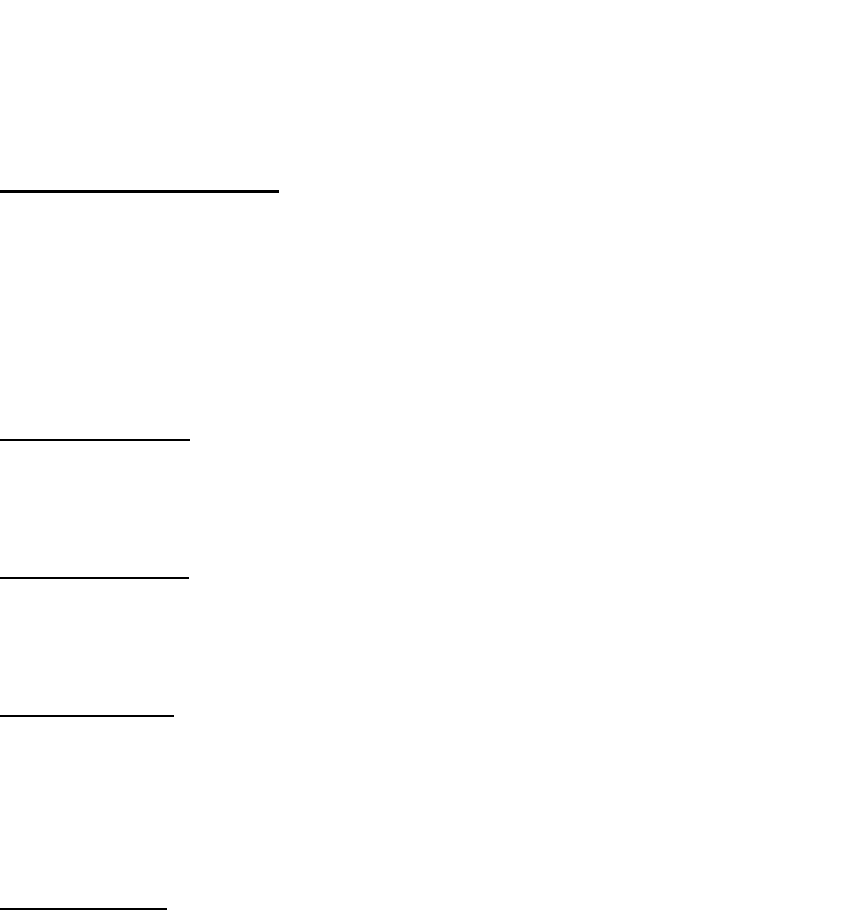
34
The University of Rochester is accredited by the Middle States Commission on Higher
Education (MSCHE), 1007 North Orange Street, 4th Floor, MB #166, Wilmington, DE
19801. Education programs at the Warner School of Education and Human Development
are accredited through external verification by peer reviewers by the accreditation
body or agency appropriate for the given field of study. Department chairs and program
directors prepare program accreditation materials under the approval and review of the
Office of the Dean.
2. Recruitment & Admissions
The Executive Director of Admissions is responsible for maintaining and updating
recruitment and admissions resources for faculty and staff. Faculty are expected to
participate fully in all admissions activities, including recruiting events (and admissions
days), corresponding with potential applicants, conducting interviews, completing all
paperwork, attending admissions decision meetings, and assisting in student recruitment
events.
3. Committee service
All faculty are encouraged to contribute to the ongoing operations of the University
and/or Warner by participating in committees as part of their service.
4. Program meetings
All Warner programs and centers have regularly scheduled meetings set by
department/center. Attendance of all program/center faculty is expected.
5. Faculty meetings
Faculty meetings are held monthly between September through May. Our current
schedule is that they are held on the first Tuesday of the academic months, with the
exception of the first meeting each semester, which will occur on the second Tuesday.
Attendance of all faculty is expected.
6. Commencement
Faculty members are invited to attend all commencement ceremonies and may be asked
to represent their department or program at commencement exercises. Faculty members
are encouraged to wear academic regalia at commencement and other occasions, as
announced. The Faculty Support Office handles the ordering of and payment for the
rental of regalia and will arrange for regalia to be brought to faculty members’ offices.
Faculty members are strongly encouraged to attend the Warner commencement
ceremony.

35
D. PROFESSIONAL DEVELOPMENT
1. Faculty Annual Reviews
Annual reviews will be conducted for each faculty member in the spring of each
academic year. The Dean, Program Chair, and/or Center Director will meet with each
faculty member to discuss their progress, accomplishments, goals, and future plans.
As part of the annual review process, faculty are required to complete the web-based
“Faculty Annual Report” https://my.warner.rochester.edu/app/far/ which captures the
following information:
Teaching & Advising
• All non-independent study courses taught during the past academic year,
including summer, fall, and spring semesters.
• All independent study courses taught where faculty-supervised students who
completed independent study or research apprenticeships during the past
academic year, including summer, fall, and spring semesters.
• All master’s and certificate advisees for whom faculty were assigned during the
academic year.
• All master’s and certificate students for whom faculty served as a
reviewer/committee member for a master’s essay or master’s thesis during the
academic year.
• All doctoral advisees for whom faculty were assigned during the academic year.
• All doctoral students for whom faculty served as a reviewer/committee
member for a comprehensive exam or dissertation during the academic year.
Research & Scholarship
• Publications – if not imported from ORCiD.
• ORCiD works – Faculty Annual Report will automatically import works from
ORCiD. Faculty should contact Warner IT for assistance in establishing import
functionality. Faculty members should sign up for an ORCiD account if they do
not already have one.
• All professional presentations given during the academic year.
• All funded research and/or reform projects for which faculty have been involved
or submitted a proposal during the academic year.
• Evidence of recognition for professional work (e.g., awards and other official
recognitions, citations of work in other publications, evidence of the impact of
work in the local community, evidence of the impact of publications or
dissemination efforts, being appointed to serve on editorial boards or other
influential committees, instances of work being featured in the media, etc.).
Practice
• All specific projects participated in that allowed faculty to work toward
improving educational policies and practices identifying faculty roles.
• All committees/boards served on and role within each during the academic year.
• All professional development activities/initiatives the faculty member provided
during the academic year.

36
Service
• All contributions to the functioning of the Warner School and/or the University
of Rochester more generally.
• All contributions to the faculty member’s professional field. For each, identify
roles played in professional organizations, responsibilities with journals, service
on student committees for other universities, and any other contributions.
Equity & Inclusion
• All activities, initiatives, and roles through which faculty have worked toward
improving equity and inclusion in educational policies and practices. These can
include individual, structural, or systemic efforts in the areas of teaching, research
and scholarship, practice, and service.
Alongside the Faculty Annual Report, faculty members are required to submit the
following documents to the Dean’s Office by the assigned deadline:
• A brief statement summarizing the faculty member’s significant accomplishments
and challenges faced in the academic year beginning the prior May and goals for
the upcoming academic year.
• An updated CV.
NOTE: Any faculty member who has already submitted documentation as part of a
reappointment or promotion process during the year does not need to submit this
documentation with their Faculty Annual Report.
Failure to submit documentation for faculty annual review by the assigned deadline may
result in consequences, including withholding the annual salary increases and/or
prompting an early review.
2. Faculty Professional Expense Allowance
All tenure-track faculty and clinical faculty members with appointments of .5 FTE or
higher are entitled to a professional expense allowance for the academic year. Allowable
expenses include approved conference and meeting travel, professional memberships,
books, journal subscriptions, publication costs, software purchases, computer hardware,
software licensing and certification fees, and transcription services. Questions about
which expenses are allowable according to University regulations should be directed to
the Director of Finance and Administration. In addition, a limited number of annual
conference presentation awards will also be awarded:
Requests for Conference Presentation Awards must be submitted to the Director of
Finance and Administration, who will compile requests for the Dean, with the following
information provided for each conference:
• Title of the presentation(s) and coauthors (if any)
• Role to be played in the presentation (e.g., main presenter, second author, not
playing a major role in the presentation itself, symposium organizer and
facilitator, etc.)
• Name of the conference and location

37
• A brief characterization of the importance of the conference in one’s field and the
significance of presenting at that conference for the individual faculty member
• Plans (if any) to sponsor some of our graduate students also planning to
participate in the conference
• Status of the presentation (e.g., accepted, proposal pending, or proposal not yet
sent)
If awarded a conference presentation award, faculty are expected to notify the Director of
Finance and Administration of the outcome of their proposal (if pending at the time of
their request). If the proposal is not accepted, the faculty member can choose to (a) attend
the conference anyway, but with reduced financial support from Warner of up to half of
the original award, or (b) decide not to attend the conference and forego the award. In
either case, the faculty member should communicate their decision to the Director of
Finance and Administration as soon as possible after receiving notification about the
outcome of their proposal so that their travel budget can be updated.
Faculty should work with the Faculty Support Office whenever possible to book airfare
through the University’s travel agent.
Whenever faculty members participate in meetings or working conferences as
representatives of the Warner School by prior written request of the Dean, their costs will
be fully funded and not considered part of the annual allowance or treated as a conference
presentation award.
Regardless of the source of internal funding, faculty can obtain reimbursement for
professional expenses only if:
• They present their request and itemized receipts to the Faculty Support Office for
reimbursement within 30 days of return from each conference and for conferences
from May through June 1 of the academic/fiscal year. Refunds will not be
provided after that date for the academic year.
• The expenses incurred must be considered allowable professional expenses by the
University of Rochester. Faculty members should review the University’s
Business Expense and Travel Reimbursement Policies before incurring expenses,
particularly if they are considering using personal funds to purchase and then seek
reimbursement.
• Total expenses for the year are within the faculty member’s approved travel
and/or professional expense budget.
Unused funds cannot be rolled over to the following year. Inquiries about professional account
balances are directed to the Faculty Support Office administrative assistant.
V. SHARED GOVERNANCE
The University of Rochester Faculty Handbook states, “Faculty participation in governance
promotes diversity of ideas, shared responsibility, collaboration, collegiality, and institutional
excellence.” The faculty of the Warner School of Education and Human Development is
responsible for establishing operating procedures for its governance. The operating
procedures for shared governance shall protect the following rights of faculty to participate in

38
governance without fear of retaliation in subsequent decisions on promotion, salary, and
conditions of employment. The responsibilities include:
A. WARNER FACULTY BYLAWS
The Margaret Warner Graduate School of Education and Human Development
Bylaws
[Originally Adopted March 17, 1987]
Updated and Adopted November 1, 2016
PREFACE
This document defines the Faculty of the Margaret Warner Graduate School of
Education and Human Development (the Warner School) of the University of Rochester
and its formal rights. Rights not mentioned herein are reserved to the Dean or higher
administrative officers.
THE FACULTY
A. Members of the Faculty of the Warner School are:
1. The President and the Provost of the University.
2. All persons who hold a tenured or tenure-track appointment in the
University whose principal appointment is in the Warner School
3. All persons who hold a term appointment in the University whose principal
appointment is in the Warner School, whose appointment is at least half-
time, and who have the rank of professor, associate professor, or assistant
professor
4. All other persons with primary teaching or research appointment in the Warner
School whose appointment is at least half-time (i.e., visiting faculty).
B. Voting members of the Faculty are those in classification 1, 2, and 3 above, and
individuals entitled to vote at the time of adoption of these bylaws while they continue
to have a teaching or research appointment with the Warner School.
FACULTY MEETINGS
A. There shall be four regular faculty meetings per semester. Additional meetings may be
called by the Dean, by the Steering Committee (defined below), or by petition of at
least five members of the Faculty. Regular meetings may be cancelled by the
Steering Committee in consultation with the Dean.
B. The presiding officer shall be the President, the Provost, the Dean, the Dean's
representative, or the Secretary of the Faculty, in that order.
C. A quorum shall be forty percent of the voting members of the Faculty.
D. Faculty meetings may be attended by Faculty members, and by others designated for a
specified period of time by majority vote of the Faculty.
E. A Faculty forum, consisting of members of the Faculty, may be called by the Steering
Committee or by petition of at least five members of the Faculty. The Secretary of
the Faculty, or in their absence a Faculty member designated by the Steering
Committee, shall preside. The forum may, by majority vote, invite any person who
39
is not a member of the Faculty to attend. The forum shall take no formal action.
RIGHTS OF THE FACULTY
The Faculty shall have the following rights, to be exercised by majority vote with secret
ballot of the voting members of the Faculty at a regular or special meeting of the Faculty:
A. Recommend candidates for degrees to the trustees.
B. Approve degree programs recommended by the Dean.
C. Elect the Secretary of the Faculty and the Steering Committee of the Faculty.
D. Establish or disband standing or ad hoc committees of the Faculty, define their
duties, and elect members of those committees. Candidates for membership on such
committees may be nominated by the Steering Committee or from the floor.
In addition, the Faculty shall have the right to be consulted to the extent feasible on
all matters of significance related to instruction at the Warner School, such as
appointment and promotion of faculty, admissions, financial aid, conferral of degrees,
and similar matters.
COMMITTEES AND OFFICERS OF THE FACULTY
A. The Secretary of the Faculty shall be nominated by the Steering Committee or from the
floor and elected by the Faculty by secret ballot. If no candidate receives a majority
of the votes cast, there shall be a runoff between the top two contenders. The
Secretary of the Faculty shall have the following powers and duties:
1. Keep minutes of Faculty meetings.
2. Develop an agenda for Faculty meetings in consultation with the Steering
Committee and the Dean.
3. Preside at Faculty forums.
4. Other duties as assigned by the Faculty by majority vote.
B. The Steering Committee of the Faculty shall consist of one member from each of the
three Areas (Counseling and Human Development, Educational Leadership, Teaching
and Curriculum) to be nominated by the voting Faculty of the Area or from the floor in
a Faculty meeting and elected by the voting members of the Faculty by secret ballot. If
no candidate from an Area receives a majority of the votes cast, there shall be a runoff
between the two top contenders. The Steering Committee shall have the following
powers and duties:
1. Nominate members of committees of the Faculty.
2. Nominate the Secretary of the Faculty.
3. Consult with the Secretary of the Faculty on the agenda for Faculty meetings.
4. Call special meetings of the Faculty, establish in conjunction with the Dean a
calendar of regular Faculty meetings, and cancel or postpone regular Faculty
meetings, also in consultation with the Dean.
5. Call Faculty forums, and designate a presiding officer in the absence of the
Secretary of the Faculty.
6. Other powers or duties as delegated by the Faculty by majority vote in a Faculty
meeting.

40
AMENDMENTS
Amendments to these Bylaws may be proposed at any Faculty meeting. The proposed
amendment may not be adopted at that meeting, but may be approved for future
consideration by a majority vote of voting members of the Faculty at that meeting.
A proposed amendment approved for future consideration shall be circulated in written
form among the Faculty by the Secretary of the Faculty at least one week prior to its
formal consideration.
Such previously proposed amendments may be approved by a two-thirds vote of the
voting members of the Faculty present at a regular or special meeting of the Faculty.
PARLIAMENTARY AUTHORITY
Robert's Rules of Order shall serve as the parliamentary authority for the Faculty
during motions and resolutions that result in a vote.
B. SHARED GOVERNANCE COMMITTEES
1. Faculty Steering Committee
As described in the Bylaws, the Faculty Steering Committee consists of one member
from each of the three Areas (Counseling and Human Development, Educational
Leadership, and Teaching and Curriculum) and/or Centers. Steering Committee meetings
include the Dean of the Warner School and the Secretary of the Faculty. The agenda for
faculty meetings and faculty forums are established in the Steering Committee meetings.
Warner Faculty are encouraged to work through their Steering Committee Area
representative to raise topics for possible discussion. Topics or issues relevant to Warner
Faculty as a whole may also be shared with the Secretary of the Faculty. In addition to
the agenda, the Steering Committee determines the location and format of meetings,
including decisions regarding virtual or face-to-face formats.
2. Warner School Admissions and Financial Aid Committee (AFAC)
The Admissions and Financial Aid Committee (AFAC) is comprised of a representative
from each of the 3 program areas (Counseling and Human Development, Educational
Leadership and Teaching and Curriculum) as well as the Executive Director of
Admissions. Together the committee reviews all applicants to a given application cycle;
reviewing both the individual faculty ranking as well as the program ranking. The charge
is to review for consistency within and among the departments regarding the ranking of
applicants. The AFAC committee also reviews faculty and program recommendations
for merit based financial aid.
3. Warner School Academic Policy Committee (APC)
The Academic Policy Committee's charge is to review proposed new programs or major
modifications to existing programs, seek input from stakeholders as needed, and make a
recommendation to the Warner faculty about whether the proposed addition or change
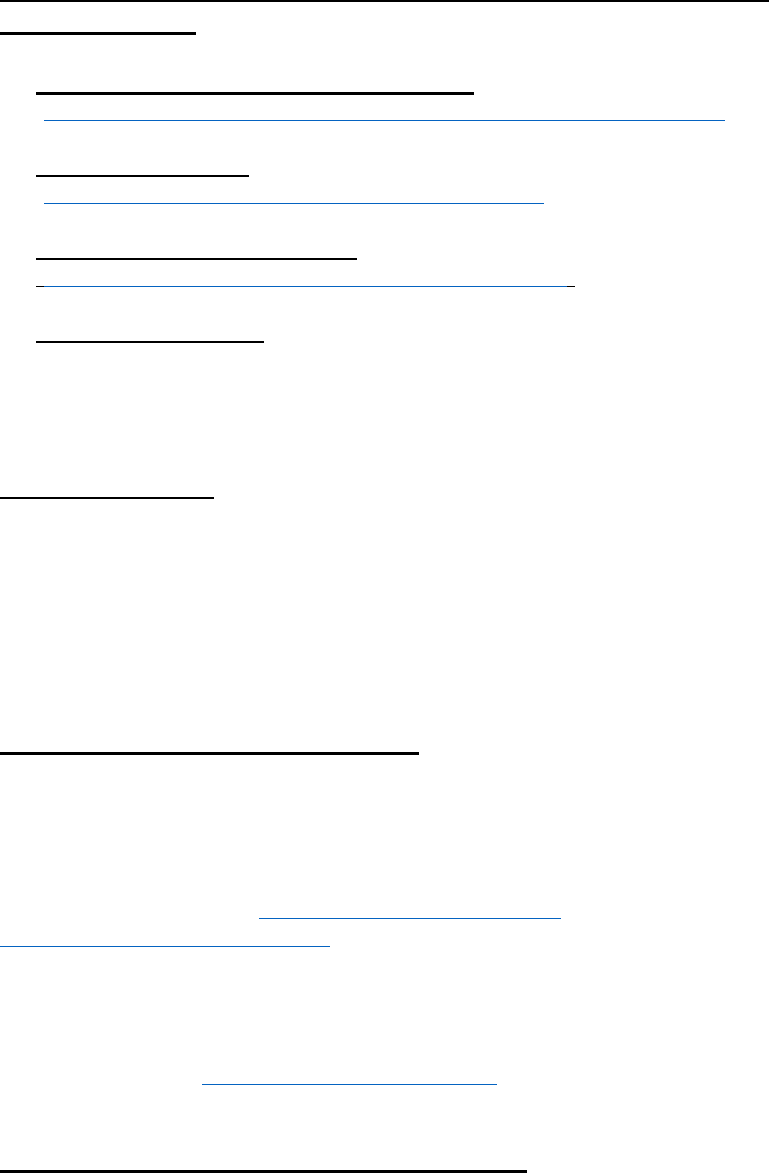
41
should be implemented. The Committee does not review proposed new courses or
modifications to existing courses, which happens at the program area level. The
Committee comprises one representative from each of Warner's three program areas.
C. WARNER FACULTY REPRESENTATION ON UNIVERSITY
COMMITTEES
1. UR Faculty Senators Executive Committee
(https://www.rochester.edu/Faculty/senate/senate-executive-committee/)
2. UR Faculty Senators
(https://www.rochester.edu/Faculty/senate/members/)
3. UR Faculty Senate Committees
(https://www.rochester.edu/Faculty/senate/committees/)
4. RSRB Board Member
Samantha Daley
VI. FACULTY RESOURCES
A. GRANT OFFICE
T
he Warner School provides resources to assist faculty and staff in identifying, applying for,
and administering grants that support research, teaching, and service. Please note that all
applications for funding must be submitted by, or in conjunction with, the research
administrator and that all funding applications must be submitted internally to the
University’s Office of Research and Project Administration (ORPA) one week prior to the
funder’s deadline.
B. INFORMATION TECHNOLOGY
The Warner School IT group supports all aspects of technology, including individual
computers, software installation and use, and IT in physical spaces, including faculty/staff
offices and classrooms.
For general support, email [email protected]. For Blackboard support, email
[email protected]. IT can also be reached at 585-270-1870 or LeChase Hall
rooms 362-368.
The University of Rochester and the Warner School of Education have licenses for software,
including Office, SPSS, NVivo, and Qualtrics. Other software may be available under special
agreements. Contact [email protected] to have software installed or to inquire
about new software.
C. COMMUNICATIONS AND MARKETING
The Warner School Office of Marketing and Communications is responsible for marketing
and communications to prospective students, current students, alumni, peers, and community
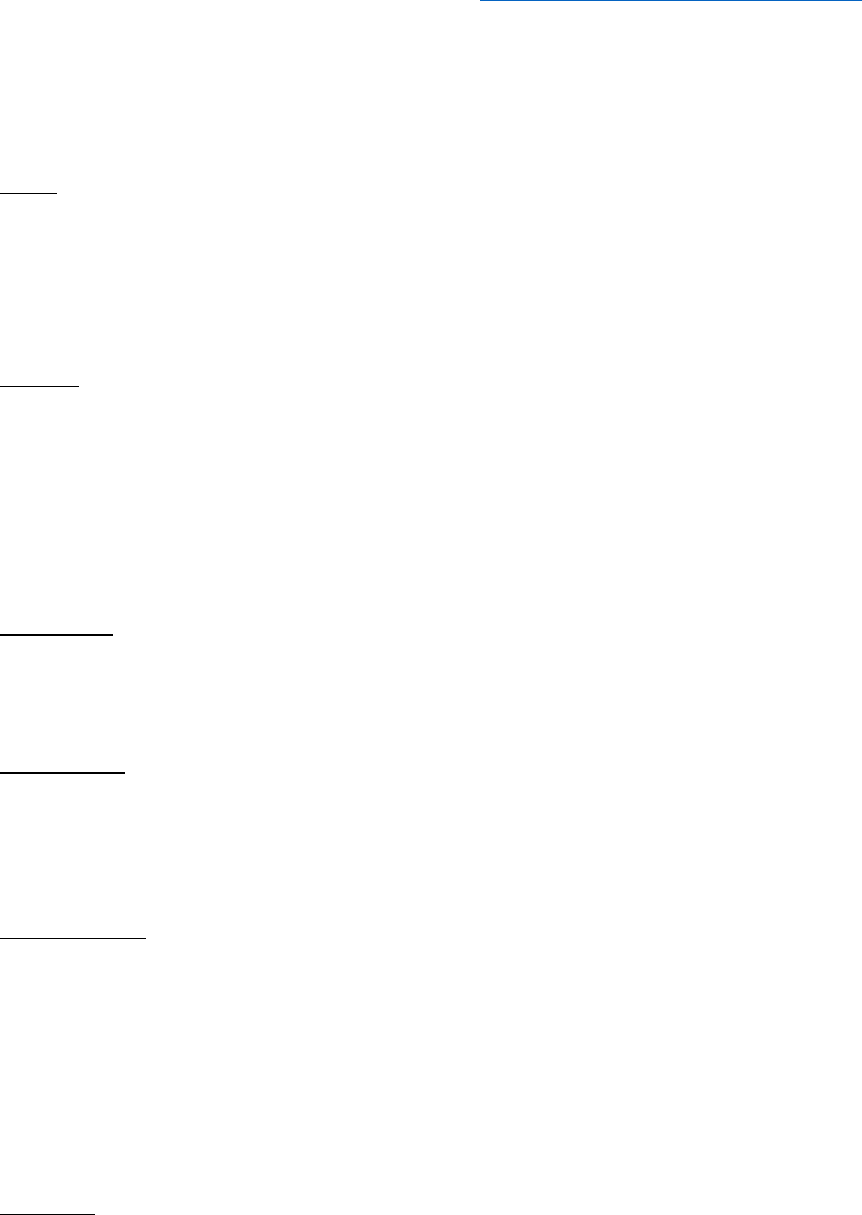
42
supporters of the Warner School. The Dean’s Office coordinates internal communications
with faculty and staff. To request service, contact [email protected].
Regardless of the tactic or medium chosen to reach the intended audience, the
communication office work starts with securing an understanding of your audience, strategy,
and intended outcomes. Based on this information, the team will develop a plan to meet your
needs to include the following tactics, if not others:
Email
This office creates and disseminates emails to current students, alumni, and those outside the
Warner School. Prospective student emails are distributed by Admissions, with messaging
and visual development provided by the Marketing and Communications team to meet
Admissions’ objectives. Current student emails are sent monthly through a newsletter and, as
needed, through the team or the Dean’s office.
Website
The Warner School’s website content, structure, visuals, and analytics are managed through
Marketing and Communications. (Information Technology no longer manages the website
but plays an active role in the Intranet and Blackboard.) The school website is intended for
external audiences, with a priority placed on recruiting new students. The Marketing and
Communications group works collaboratively to establish the content strategy and priorities
based on School/University goals and strategic plans and directs the research, analysis, and
advancement of new media technologies and communications.
Advertising
The team coordinates all advertising for programs, centers, research, or initiatives to ensure
the return on advertising spend and maximize the impact of advertising. The team will create
the most impactful message and visuals that align with University standards and guidelines.
Social media
The School’s institutional social media accounts are managed by the team and intended to
engage prospective students, peers, and current students. Faculty and staff are invited to
follow the School’s social media channels to stay informed of how the School is engaging
these important audiences.
Graphic design
The School does not offer in-house graphic design services for print materials. Digital
graphic support is available on a limited basis, depending on the request. Graphic design
services for print materials require the engagement of external vendors and appropriate
academic/center/unit budgetary support. The office will coordinate the creation to ensure
brand and graphic standards are met by external vendors. The office does not provide design
services for educational aids for classroom use, conference posters, small-run invitations, or
other non-marketing collateral materials related to individual research projects and
community programs.
Collateral
The team creates and manages collateral to promote programs, departments, centers, and
initiatives to ensure consistency in messaging, strategy, and design. Requests for new
materials using existing templates can be made directly to the team.

43
News/media relations
Share a story idea for a feature or news for press coverage. The team will work with you to
assess suitability for external media placement and will work directly with media
organizations. If you have been approached by the media to comment on an issue or want to
submit opinion pieces to the media, contact the team to coordinate.
Photography
Photography services are not offered in-house. For assistance in hiring a photographer,
contact the team for a list of approved vendors.
D. AMERICANS WITH DISABILITY ACT RESOURCES
The Americans with Disabilities Act (ADA) website provides information on how students
can apply for academic accommodations and other resources. The ADA contact for the
Warner School is also listed on this site.
The University of Rochester respects and welcomes students of all backgrounds and abilities.
In the event students encounter any barrier(s) to full participation in a particular course due to
the impact of a disability, they should contact the Office of Disability Resources. The access
coordinators in the Office of Disability Resources can meet with you to discuss the barriers
they are experiencing and explain the eligibility process for establishing academic
accommodations.
Faculty are encouraged to review the Warner Accessibility Checklist.
VII. UNIVERSITY RESOURCES
A. ACADEMIC LEAVE
The purpose of academic leaves is to support scholarship productivity (e.g., publications,
grants, etc.) of tenure-track faculty members and to increase the research exposure, impact,
and reputation of the Warner School. All academic leaves must be justified in the context of
these activities, whether supported in part by University funds, paid from other sources, or
unpaid. Detailed information on leaves is in the University of Rochester Faculty Handbook.
Faculty can expect, at a minimum, to be eligible approximately every six years for one
semester of academic leave with full salary or for one year of academic leave with half
salary (hereafter called a paid leave). Eligibility for a paid leave is evaluated according to
the total number of years (consecutive or non-consecutive) that faculty members have been
in residence (and performing regular faculty duties) since their last paid leave, their first
year as tenure-track faculty, or their pre-tenure faculty leave, whichever is most recent.
Other forms of academic leave delay but do not otherwise affect eligibility for University-
paid leaves.
Regardless of the source or amount of financial support, the expectation is that the
maximum a faculty member will be on academic leave is no more than four semesters in
any five-year period. No more than two of these semesters on academic leave will be
consecutive except in unusual circumstances (e.g., government service with a required
extended term).

44
Leave requests are due to the Dean’s Office by December 1. The Dean’s recommendations
are forwarded to the Provost’s Office by March 1, and final approval, budgeting, and
notification occur in the Provost’s Office. Exceptional opportunities that may not have been
evident at the time of the annual call will be considered at other times on a case-by-case
basis; such cases are expected to be rare.
For each request, the following should be supplied:
1. A brief written description of the research or other activities you will undertake
during the leave and why a leave is necessary to pursue these activities;
2. A brief written description of how the research or other activities will make you a
more valuable teacher, scholar, or both; and
3. A statement indicating the requested term of the leave (e.g., Fall 2023, Spring 2024,
or academic year 2023-24). (Note: The University typically supports leaves at full
salary for one semester or half salary for the academic year).
Since academic leaves can affect teaching and advising duties during the period of absence,
your request should, in consultation with your program chair, indicate how your assigned
teaching and advising responsibilities will be met during the leave. In addition, you should
list any academic leaves you have taken after your pre-tenure faculty leave. The University
Faculty Handbook states that “priority will be given to those requests where past leaves are
least recent or where disruption of instruction is minimal” (2022, p. 51).
If the Dean endorses multiple leave requests, the Dean, as directed by the Provost, will rank
order the requests by taking into consideration the benefits to the University, the period
since prior academic leave, and programmatic difficulties caused by the leave (e.g., absence
of teaching or advising).
NOTIFICATION: The Dean’s recommendation on the leave applications will be sent to
you as soon as the review is complete. Formal approval of leaves is done by the Provost,
and final decisions are usually not made until late Spring.
B. PRE-TENURE LEAVE
Pre-tenured faculty members can apply through their program chairs for pre-tenure leaves.
The principles outlined above are applicable. Given the small size of our School and thus
the increased demands for service, Warner School considers Junior Leaves an important
support for pre-tenured faculty to successfully meet the demands of tenure. Awards are
made at the discretion of the Dean, subject to approval by the Provost. Leaves are typically
granted after the first reappointment as an assistant professor. In all cases, the leaves provide
salary support. If outside funding is available, it should be used. A Junior Leave, alone or in
combination with another academic leave, does not delay the time for a promotion and
tenure decision. As with all academic leaves, Junior Leaves are available for tenure-track
faculty only.
C. BRIDGING FELLOWSHIP
Bridging Fellowships are arrangements whereby a faculty member spends a period, usually
a semester, in a department other than their own. The other department is often in another

45
school but is always at the University of Rochester. The distinctive feature of Bridging
Fellowships is that they are for study in an area that is peripheral to the fellow’s central
professional concern, and they permit the acquisition of knowledge and methods in a
different field. These fellowships are thus distinct from academic leaves, and holding a
Bridging Fellowship does not affect subsequent consideration for such leaves. Each school's
dean’s or director’s office generally solicits applications once a year. Completed
applications require the approval of the applicant’s chair before being submitted to the Dean
for final approval. For an untenured faculty member, a Bridging Fellowship does not delay a
tenure decision, even when combined with a one-semester leave. See
https://www.rochester.edu/provost/faculty-support/faculty-development/funding-
opportunities/bridging-fellowships/ for information on how to apply.
D. TUITION WAIVER
Tuition benefits are available to full-time faculty members and dependent children.
Eligibility for tuition waivers or tuition reimbursement varies and depends on the length of
service and other factors. See http://www.rochester.edu/working/hr/benefits/tuition/ for a
description of tuition benefit policies for employees and dependent children. Contact the
Benefits Office of Human Resources for additional information at (585) 275-0476 or
TuitionBene[email protected]hester.edu.
E. ORPA OFFICE
The Office of Research and Project Administration (ORPA) contributes to the academic
mission of the University of Rochester by providing support for obtaining sponsored
research funds and managing sponsored program activity.
The ORPA serves and guides the University of Rochester community on all aspects of
sponsored programs administration by providing:
• Pre- and post-award services
• Stewardship of external sponsored funding
• Training and education
• Information systems pertinent to research administration and funding
Go to ORPA’s website: https://www.rochester.edu/orpa/
Conflict of Interest
The University of Rochester’s Faculty Conflict of Commitment and Interest can be found at
https://www.rochester.edu/policies/policy/conflict-of-interest/. “The primary intent of this
policy is to help research faculty more effectively manage potential conflicts in the course of
their University activities. By reporting financial interests and managing conflicts from the
start, the University and the researcher can work together to prevent outcomes that may be
harmful to either the researcher or the University at large. Further, this policy fulfills
federal grant requirements to report certain financial interests.”
All faculty must complete the University’s Conflict Reporting Form annually. Faculty who
are not Investigators are required to complete the General Conflict Reporting section of the

46
form. Investigators must complete the form's General Conflict Report and Investigator
Reporting sections. All Forms must be submitted by March 1 for the previous calendar year
or within 60 days of appointment. A new faculty member submitting a form within 60 days
of appointment must complete the Investigator Reporting section of the reporting form only
or indicate on the form that they do not meet the definition of Investigator by this policy.
Intellectual Property Agreement
The University requires everyone who has technical responsibilities to the University or
who participates in an internally or externally sponsored research program at the University
to execute an Intellectual Property Agreement (IPA). Each department is responsible for
securing the execution of the IPA at the outset of the individual’s employment or other
association with the University. For non-student employees, the Human Resources Office
will assist in this process at the time of hire. The completed forms should be forwarded to
ORPA before the individual begins work. ORPA will provide neither institutional
endorsement nor sign proposals or awards for any individual named in an application for
sponsored research if ORPA has not received a signed IPA from that individual.
URVentures protects, develops, and commercializes intellectual property arising from
research at the University. Information can be found at the following link:
https://www.rochester.edu/ventures.
47
Appendix A: Promotion Guidelines for Preparing the Personal Statement
The Personal Statement should provide reviewers (both external and internal) with a summary of
your accomplishments and future plans in the key areas of scholarship, teaching, and service, as
well as a sense of the significance of your contributions to the professional field and the Warner
School. To be effective, the Personal Statement should not exceed 20 pages single-spaced (use
12-point font, as smaller fonts would diminish the readability of the document).
Additional recommendations:
• Make sure you “position” your work in the field(s) you associate yourself with and wish
your work to contribute to by identifying what those fields are and how the topics you
have worked on are significant for one or more of these fields.
• Keep in mind that most of your internal reviewers are not familiar with your field and
work, so keep jargon to a minimum throughout the document.
• In reporting on your achievements and plans for research, try to identify and talk about
specific lines of research and major projects rather than just describe your individual
publications.
• For all your work, try not to just “describe” what you have done but also to help
reviewers understand its significance and impact on the field. In doing so, it may help to
report and comment on citations of your work, its inclusion on important lists, syllabi,
etc., invitations to serve in certain committees or give invited presentations, and other
evidence that your work has been recognized and used.
• Provide sufficient information about the “quality” of the outlets you have published in –
while this can be achieved in various ways, an effective vehicle is to provide an appendix
with a list of the major publication outlets you have targeted (including top journals you
may not have published in yet), along with some key information about their readership,
selectivity, impact, etc.
• To get a better sense of your advising load and accomplishments, consider listing all your
past and current advisees in an Appendix, indicating their graduation date and topic of
dissertation/theses when appropriate.
• If other details are critical to evaluating your case, add them in Appendices; however,
these appendices should be kept to a minimum.

48
Appendix B: Criteria and Indicators for Evaluating Clinical Faculty
Criteria and indicators for evaluating minimum expectations common to all clinical faculty
1. A clinical faculty member regularly interacts with local educational, clinical, and
community institutions and local professionals, is current on the issues and problems
facing these institutions/professionals, and works with them on significant matters (e.g.,
leadership issues, administrative issues, practice issues, etc.). This can be documented by
a combination of indicators that may include:
• Record of participation in some projects, meetings, and/or other initiatives
involving local institutions and education professionals (required minimum).
• Self-reports and/or artifacts that provide anecdotal evidence of the faculty
member’s understanding of local educational issues and their contributions.
• Relevant testimonials from local education professionals.
2. This work is relevant to and informs what the clinical faculty member teaches. A clinical
faculty member is, thus, an effective teacher who can improve the professional practice
of Warner students. This can be documented by a combination of indicators that may
include:
• Record of some involvement with Warner students that contributed to their
preparation (required minimum).
• Course syllabi and/or descriptions of major assignments, projects, or class
activities that show how the clinical faculty member capitalizes on their practical
knowledge and experiences.
• Self-reports and/or artifacts that provide anecdotal evidence of how the faculty
member has capitalized on their practical knowledge and experiences in teaching
courses and/or supervising internships.
• Relevant testimonials from Warner students.
3. A clinical faculty member discusses and analyzes in an informed way the issues and
problems being wrestled with by local institutions, bringing to bear relevant current
research. This can be documented by a combination of indicators that may include:
• Self-reports and/or artifacts that illustrate how the faculty member has analyzed
current educational issues in light of relevant research.
• Relevant testimonials from local education professionals and peers.
4. A clinical faculty member is familiar with the promise and limits of research and suggests
interesting lines of future research (e.g., by offering hypotheses worth further
investigation) that they and other researchers (including Warner students) could
undertake. This can be documented by a combination of indicators that may include:
• Record of participation in this role in projects, meetings, and/or other initiatives
involving education researchers.
• Self-reports and/or artifacts that provide anecdotal evidence of the faculty
member’s contributions to research questions and ideas.
• Relevant testimonials from doctoral students, tenure-track faculty, and other
education researchers.
5. A clinical faculty member has the capacity to identify what is and is not “quality”
research and “wisdom of practice” relevant to specific contexts and goals and, as such,

49
helps Warner students, as well as other educators and helping professionals, find, analyze
and translate research into practice. This can be documented by a combination of
indicators that may include:
• Relevant presentations, publications, and/or unpublished written work.
• Self-reports and/or artifacts that provide anecdotal evidence of the faculty
member’s activities and contributions in this area.
• Relevant testimonials from doctoral students and/or other educators/helping
professionals.
6. A clinical faculty member offers insights and generalizations about their own experiences
in a way that is relevant to and useful for other professionals in the field and to
university-based researchers. This can be documented by a combination of indicators that
may include:
• Self-reports and/or artifacts that provide anecdotal evidence of the faculty
member’s activities and contributions in this area.
• Relevant testimonials from students, educators, helping professionals, and/or
education researchers.
7. A clinical faculty member effectively relates to two audiences – professionals in the field
and university-based researchers – and communicates to these audiences through the
appropriate media (oral, written, and multi-media). This can be documented by a
combination of indicators that may include:
• Record of at least some workshops, presentations, publications, and/or
unpublished written work (required minimum).
• Self-reports and/or artifacts that provide anecdotal evidence of the faculty
member’s activities and contributions in this area.
• Testimonials by education researchers and/or educators/helping professionals.
8. A clinical faculty member seeks and obtains external funding, if and as needed, to fulfill
their responsibilities. This can be documented by a combination of indicators that may
include:
• Records of having attempted to secure external funding (which may include
private practice) OR a compelling explanation of why seeking external funding
was not needed/appropriate given one’s focus areas.
• Quality of proposals and letters of inquiries prepared by the faculty member
(whether successful or not).
• Record of externally-funded projects the faculty member contributed to securing.
9. A clinical faculty member develops concrete products (e.g., curricula, materials, models,
applications, projects, conferences, organizations, and collaborations) that influence
education policy and practice on a regional, state, and/or national level. This can be
documented by a combination of indicators that may include:
• Record of “products” produced and an explanation of their potential
contributions.
• Evidence of the influence of these products on educational policies and practices.
Criteria and Indicators for Teaching
1. Main functions to be performed:
50
• Preparing entry-level and/or advanced practitioners (e.g., Master’s and EdD
students) – involves teaching courses, organizing and supervising internships,
admission responsibilities, advising, supervising independent studies and
thesis/dissertations, and “managing” programs (including maintaining
accreditation as needed).
2. Criteria for “excellence” in Teaching:
• Excellence in teaching courses that are central to the preparation of the assigned
entry-level and/or advanced practitioners, as demonstrated by a combination of
indicators that may include:
o Long-term record of teaching key courses in the relevant program(s)
for preparing entry-level and/or advanced practitioners.
o Innovative course syllabi reflecting state-of-the-art knowledge and
research in the field, capitalizing on one’s expertise as a practitioner,
and meeting expectations set by relevant professional organizations
and/or accreditation agencies.
o Evidence of using effective and innovative teaching practices in one’s
courses, including instructional technology as appropriate to enhance
students’ learning opportunities.
o Positive feedback received from students taking the course (as
provided in standardized course evaluation forms and individual
students’ testimonials), peers, alumni employers, etc.
• Excellence in supporting students’ internships and other experiences in the field,
as demonstrated by a combination of indicators that may include:
o Long-term record of engaging successfully and creatively in the
organization and/or supervision of student internships.
o Evidence of paying attention to individual student’s needs and
circumstances and recognizing and seizing opportunities to maximize
their learning.
o Evidence of using effective mentoring practices in supporting students
in their internships, including how one capitalizes on one’s
experiences as an expert practitioner.
o Positive feedback from interns’ site supervisors, peers, alumni
employers, etc.
• Excellence in working one-on-one with students, as demonstrated by a
combination of indicators that may include:
o Consistent record of successfully advising Master’s and/or EdD
students, overseeing independent studies, and/or supervising Master’s
theses/EdD dissertations.
o High quality of the work produced by students under one’s
supervision.
o Evidence of using effective mentoring practices in the above
situations.
o Positive feedback received from the students one has worked with and
peers.
• Has developed an attitude of inquiry toward their teaching practice that leads to
continuous reflection and improvement, as demonstrated by a combination of
indicators that may include:
o Evidence of reflection on one’s practice.
51
o Evidence of changes taking place in one’s syllabi, practices, etc., over
time.
• Effective and proactive participation in the management of relevant programs for
the preparation of entry-level and/or advanced practitioners, as demonstrated by:
o Consistent involvement and contributions to program reviews and
curriculum development efforts to continually improve our programs.
o Leadership in at least some aspects of the management of relevant
programs.
o Consistent involvement and contributions to student recruitment.
3. Criteria for “outstanding performance with recognition beyond the local level” in
Teaching:
• In addition to meeting all the “excellence” criteria listed above, the clinical
faculty member also demonstrates the following:
o Exceptional record of preparing high-quality practitioners, as documented
by a combination of indicators that may include:
Evidence of having contributed to the successful graduation of a
large number of students over time.
Exceptional achievements of some of the graduates one has
intensely worked with and who recognize the influence of the
faculty member on their successes.
Sustained leadership role played in designing and managing
successful Warner School programs.
• Reputation as an outstanding teacher beyond the local level, as documented by a
combination of indicators that may include:
o Having received competitive higher education teaching awards (outside
of the Warner School).
o Invitations by professional organizations and other higher education
institutions/units to give lectures and/or consult on teaching in higher
education.
o Teachers from other higher education institutions regularly come to make
observations and visits to one’s courses.
o Sustained record of attracting students (beyond the local area) to the
Warner School.
o Having been identified as an example of “best teaching practices” by
experts in the field beyond the local community (in surveys, publications,
studies, etc.).
• Evidence of influencing curriculum and/or teaching practices of other higher
education teachers beyond the Warner School, as documented by a combination
of indicators that may include:
o Development and dissemination beyond one’s unit of innovative teaching
practices, activities, syllabi, etc.
o Publication of textbooks and/or other instructional materials.
o Participation in policymaking that affects requirements and/or
expectations for programs in higher education.
o Testimonials from other higher education teachers about the faculty’s
impact on their teaching practices

52
Criteria and Indicators for Academic Scholarship
1. Main functions to be performed:
• Evaluating/studying the effects of innovative policies and practices with the goal
of identifying and refining best policies and practices and making more explicit
their connection to existing theories.
• Contributing to identifying questions and issues worth researching because of
their potential impact on policies and practices and helping other educators find,
analyze, and translate research into practice.
• Disseminating the results of one’s studies and/or of existing theories and research
to peers as well as practitioner and policymaking audiences (through the
appropriate outlets, which may include articles in peer-reviewed practitioner
journals, books, reports, presentations, videos, or other multi-media materials).
2. Criteria for “excellence” in Academic Scholarship:
• The faculty member has a coherent and worthwhile plan that guides their
scholarly efforts and contributions, as demonstrated by a combination of
indicators that may include:
o A clear articulation of this plan in the personal statement.
o Overall consistency between this plan and the work achieved to date and
planned.
• Sustained engagement in worthwhile studies contributing to the identification and
refinement of best policies and practices in education, as demonstrated by a
combination of indicators that may include:
o Sustained record of participation in projects that evaluate/study the effects
of innovative policies and/or practices (may involve any of the following:
action research studies, case studies, evaluations of many kinds of
innovations – new practices or programs, reform initiatives, etc. –
traditional research studies, etc.).
o Evidence of leadership in at least some of these projects.
• Record of efforts aiming at the identification of questions and issues worth
researching because of their potential impact on policies and practices and at
helping other educators find, analyze, and translate research into practice, as
demonstrated by a combination of indicators that may include:
o Evidence of collaboration with research colleagues to this effect.
o Participation in research projects as a consultant or collaborator in this
role.
o Participation in research panels and/or working groups in this role.
o Relevant presentations to research audiences.
o Record as a reviewer for articles, presentation proposals, grant proposals,
etc.
• Established record of dissemination efforts in outlets that are appropriate given
the purposes of the study and the audiences one is trying to reach, as
demonstrated by:
o Dissemination efforts in the form of presentations at professional
conferences, workshops, and presentations for various local audiences,
organization of conferences, and other dissemination events. (NOTE: all
these examples involve “oral” dissemination that requires the direct
intervention of the faculty member).

53
o Dissemination efforts that involve the creation of a “durable product,”
such as publications in a variety of outlets (e.g., articles in peer-reviewed
practitioner journals, articles in various other kinds of publications, books
and chapters in books with a practitioner audience, papers published in
conference proceedings, etc.), curriculum/instructional materials
(published and unpublished), videos, and other multi-media products.
(NOTE: all these examples involve “product-based” dissemination, which
can be done without the direct intervention of the faculty member, and as
such, may reach more people for a longer period).
• External validation of the value of these contributions for improving educational
policies and practices, as demonstrated by a combination of indicators that may
include:
o Evidence of rigorous review of one’s publications, presentations, and
proposals.
o Positive reviews of one’s work (unsolicited and published).
o Evaluation of external referees (chosen because they are experts in the
field and can speak about the contributions of the faculty member’s work
in improving educational policies and practices).
o Testimonials from practitioners and/or policymakers affected by the
faculty member’s scholarly work.
o External funding received – from grants, foundations, school districts,
individual donors, etc. – to support one’s projects (as it demonstrates that
the “funder” recognized sufficient value in the work to decide to “invest”
in it).
3. Criteria for “outstanding performance with recognition beyond the local level” in
Academic Scholarship:
• In addition to meeting all the “excellence” criteria listed above, the clinical
faculty member also demonstrates the following:
o A strong record of scholarly output that has provided significant
contributions to the improvement of educational policies and practices
beyond the local level, as demonstrated by a combination of indicators that
may include:
A sustained record of publications in peer-reviewed journals and/or
book series.
Publications and other scholarly products that have reached wide
audiences (e.g., books that sold a high number of copies; video-
documentaries that have been broadcasted on national TV; “tested”
curricula that have been adopted at the national level; reports that
have been widely distributed and read; studies cited in important
policy documents; etc.).
Evaluation by external reviewers chosen because they are national
experts in the field and can speak about the contributions of the
faculty member’s work in improving educational policies and
practices.
o National recognition of being an expert in the field, as evidenced by:
Evaluation of external reviewers, selected among national experts
in the field.
Other examples of national recognition could include any of the
following: scholarly awards, invitations to give plenary lectures at

54
national conferences, invitations to present to national professional
organizations, being elected/called to leadership positions in
influential state and/or national professional organizations, invited
participation to influential task forces or policymaking groups at
the national level, etc.
Sustained record of attracting students (beyond the local area) to
the Warner School because of one’s scholarly reputation.
o Record of substantial external funding (only when applicable).
Criteria and Indicators for Practice Toward Improving Educational Policies and Practices
1. Main functions to be performed:
• Developing and/or modeling exemplary practices through one’s practice (e.g., by
continuing to practice as a teacher/administrator/counselor, an educator, or a
professional development provider, etc.).
• Empowering other practitioners to improve their practices (e.g., by offering
specific professional development opportunities, engaging in one-on-one
collaborations with practitioners, providing feedback and evaluation, etc.).
• Participating in collaborative projects aimed at developing and/or implementing
innovative practices and policies (e.g., reform projects supported by grants, etc.).
• Participating in policymaking.
2. Criteria for “excellence” in Practice Toward Improving Educational Policies and
Practices:
• Excellence as an experienced practitioner in the chosen type of practice, as
demonstrated by a combination of indicators that may include:
o Evaluations/testimonials of peers, supervisors, and “clients” on the quality
of one’s practice/service (especially relevant for 1 & 2).
o Evidence of using innovative and effective practices grounded in research
and theory (especially relevant for 1, 2 & 3).
o Having received some competitive awards (especially relevant for 1 & 2).
• Local reputation as an excellent practitioner, as demonstrated by a combination of
indicators that may include:
o Evaluations of external reviewers chosen because they can speak to this
point.
o Sustained record of invitations to provide local presentations and
workshops or serve as a consultant to local institutions.
o Record of invitations to serve on local boards, committees, etc.
o Sustained record of attracting local students to the Warner School.
• A strong record of providing opportunities for other practitioners to learn from
one’s innovative practice, as demonstrated by a combination of indicators that
may include:
o Sustained record of opening one’s practice for observation.
o Sustained record of mentoring novice practitioners in one’s area (beyond
Warner students) (e.g., accepting interns – especially relevant for 1 & 2;
“apprenticing” novice practitioners – especially relevant for 2, 3 & 4).
o Dissemination of “lessons learned” from one’s practice through a variety
of outlets (may include giving presentations about one’s practice, offering
workshops, sharing instructional materials one has created, consulting,
etc.).

55
• Evidence of having contributed to improving educational policies and/or practices
through one’s practice, as demonstrated by a combination of indicators that may
include:
o Evaluations of local external reviewers chosen because they can speak to
this point.
o Evidence of concrete improvements made in educational policies and/or
practices through one’s activities.
o Testimonials from local practitioners of how the clinical faculty member
contributed to improving their practices.
• Ability to self-support one’s practice (since the Warner School cannot afford to
support this component of its mission simply through tuition revenues and current
endowment, and because it is another indicator of recognition as an excellent
practitioner), as demonstrated by a combination of indicators that may include:
o Success in securing competitive grants and/or contracts (especially
relevant for 2 & 3).
o Success in maintaining a successful private practice/consulting business in
a competitive environment (especially relevant for 1 & 2).
3. Criteria for “outstanding performance with recognition beyond the local level” in
Practice Toward Improving Educational Policies and Practices:
• In addition to meeting all the “excellence” criteria listed above, the clinical
faculty member also demonstrates the following:
o Reputation as an excellent practitioner beyond the local level, as
demonstrated by a combination of indicators that may include:
Evaluations of external reviewers chosen among individuals
beyond the local community that can speak to this point.
Having received some state/national awards.
Having been selected as a subject for studies of “best practices.”
Having been identified as an example in surveys/publications on
“best practices” or by experts in the field beyond the local
community.
Record of invitations to provide presentations and workshops or
serve as a consultant at the state/national level.
Record of invitations to serve on boards of directors, advisory
boards, committees, etc. at the state/national level.
Sustained record of serving as a reviewer for state/national exams,
competitions, grants, etc.
Sustained record of securing substantial competitive funding in
national competitions (as a Principal Investigator).
Sustained record of attracting students beyond the local area to the
Warner School.
o Evidence of having contributed to improving educational policies and/or
practices beyond the local level, as demonstrated by a combination of
indicators that may include:
Evaluations of external reviewers chosen among individuals
beyond the local community that can speak to this point.
Participation in reform projects and/or policymaking at the
state/national level (especially relevant for 3 & 4).

56
Evidence of adoption by practitioners beyond the local area of
innovative programs, curricula, practices, policies, etc. that one has
contributed to develop.
Criteria and Indicators for Service
1. Main functions to be performed (required of all clinical faculty):
• Providing service (beyond what is done to contribute to fulfilling the Warner
School’s mission through one’s teaching, scholarship, and practice), as needed
and appropriate given one’s expertise, to ensure the well-being and good
functioning of the Warner School and the University of Rochester.
• Providing service, as needed and appropriate given one’s expertise, to ensure the
well-being and good functioning of one’s profession.
2. Criteria for “excellence” in Service:
• Sustained record of being a productive, constructive, and valued member of the
Warner School community, as demonstrated by a combination of indicators that
may include:
o Evidence of ongoing participation in the “life” of the Warner School.
o Evidence of taking on one’s share of responsibilities for the functioning of
the Warner School and effectively carrying out those responsibilities (e.g.,
taking on one’s turn in elected/standing committees, effectively
completing ongoing tasks required for accreditation, serving as an outside
chair in dissertation committees, etc.).
o Ongoing collaborative and supportive attitude toward colleagues, staff,
and students, as recognized by testimonials/feedback from colleagues,
staff, and students.
• Evidence of having made some substantial contributions to the Warner School “as
an institution” (e.g., beyond contributions to specific components of the Warner
School’s mission made through one’s teaching, scholarship, and/or practice), as
demonstrated by a combination of indicators that may include:
o Key role played in some important program and/or school-wide initiatives,
such as key committees/task forces, efforts toward accreditation (e.g.,
preparing major reports, developing assessment tools and systems, etc.).
o Record of providing specific services of great need and value to the
Warner School (e.g., participation in student recruitment beyond what is
expected of all faculty members; organizing and overseeing “writing
support services” or similar initiatives; providing professional
development for faculty and/or staff on some specific issues, such as
technology and grants; serving as a liaison/support to the student
organization; etc.).
o Leadership role played in the development, redesign, and/or management
of specific Warner School programs.
o Testimonials from colleagues, staff, and students to the effect of these
contributions.
• Sustained record of participation in activities that are needed to ensure the well-
being and good functioning of one’s profession, as demonstrated by a
combination of indicators that may include:
o Membership and participation in relevant professional organizations.
o Serving as a reviewer for articles, proposals, grants, etc.

57
o Serving on local/regional committees and task forces related to one’s
profession.
3. Criteria for “outstanding performance” in Service:
• In addition to meeting all the excellence criteria listed above, a clinical faculty
member also demonstrates some of the following:
o Evidence of some participation in the life of the University beyond the
Warner School, as demonstrated by a combination of indicators that may
include:
Occasional participation in university-wide committees/task forces,
Faculty Senate, etc.
Occasional participation in university-wide initiatives, such as
lectures/colloquia, campus conferences, professional development
opportunities, open forums, etc.
Evidence of initiating and/or facilitating collaborations with
colleagues in other units of the University.
o Sustained record of having made major contributions to the Warner
School and/or University of Rochester “as an institution” (e.g., beyond
contributions to specific components of the Warner School’s mission
made through one’s teaching, scholarship, and/or practice), as
demonstrated by a combination of indicators that may include:
Key role played in several important programs, school-wide and/or
university-wide initiatives, such as key committees/task forces,
efforts toward accreditation (e.g., preparing major reports,
developing assessment tools and systems, participating as a
Warner School representative on the Middle States Commission on
Higher Education accreditation group; serving on the University
budget committee), etc.
Sustained record of providing specific services of great need and
value to the Warner School and/or the University of Rochester
(e.g., participation in student recruitment beyond what is expected
of all faculty members; organizing and overseeing “writing support
services” or similar initiatives at the Warner School and/or
involving other units in the University; providing professional
development for Warner and/or university-wide faculty and/or
staff on some specific issues, such as instructional technology,
entrepreneurship, etc.; serving as a liaison/support to the student
organization; etc.)
Sustained leadership role played in developing, redesigning, and
managing specific Warner School programs.
Testimonials from colleagues, staff, and/or students to the nature,
effect, and significance of these contributions.
o Record of some leadership role in activities that are necessary to ensure
the well-being and good functioning of one’s profession at and beyond the
local level, as demonstrated by a combination of indicators that may
include:
Taking on some leadership positions and/or responsibilities in
relevant professional organizations.
Serving on state/national committees and task forces related to
one’s profession.
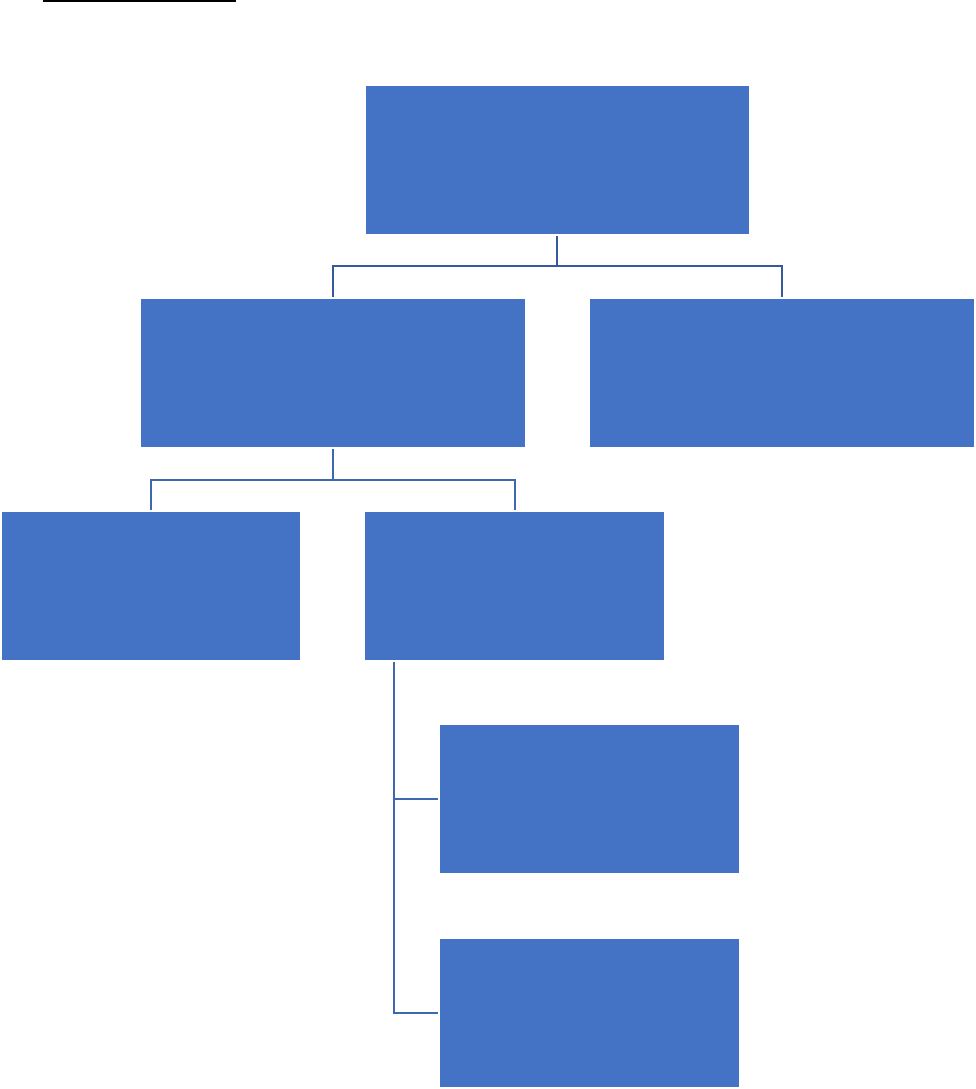
58
Appendix C: Warner School of Education and Human Development
Organization Charts
Administration:
Sarah Peyre
Dean
Cindy Callard
Associate Dean for Graduate
Studies
Pamela Kaptein
Administrator for
Accreditation, Certification,
and Assessment
Jessica Moriarty
Administrator for Faculty
and Academic Affairs
Lauren Warner
Executive Assistant
Kim Kopatz
Administrative Assistant
Samantha Daley
Associate Dean for Research
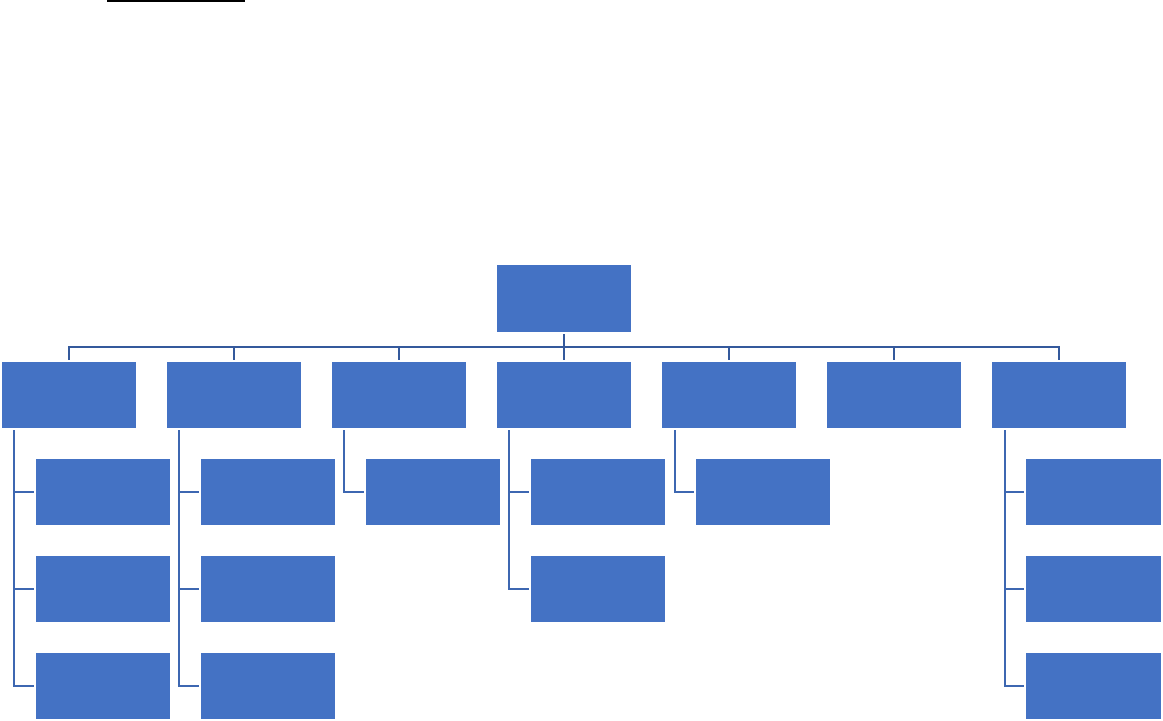
59
Warner School of Education and Human Development Organization Chart
Staff Units:
Sarah Peyre
Dean
Nisha Johar
Director of Finance &
Administration
Brandon Inguaggiato
Staff Accountant
Susan Jones
Senior Accountant
TBA
Research Administrator
David Garcia
Database & IT Director
Kosala Jayawardhane
Web Developer &
Database Admin
Audrey Lai
Assistant Director,
Educational
Technology
Bishes Shrestha
Systems Administrator
Theresa Danylak
Director of
Communications
Justin Colline
Digital Marketing
Manager
Pamela Black-Colton
Executive Director of
the Office for Student
Services
Gal DiMambro
Student Services
Administrator
Harriette Royer
Assistant Director of
Career Services
Preston Faulkner
Executive Director,
Advancement
Zoe Adams Gutzmer
Assistant Director,
Advancement
Anika Simone Johnson
Assistant Dean for
Equity and Inclusion
Emily McGuire
Director of Warner
Enrollment and
Admissions
Jasmine Mitchell
Associate Director of
Admissions
TBA
Associate Director of
Enrollment
TBA
Administrative Support
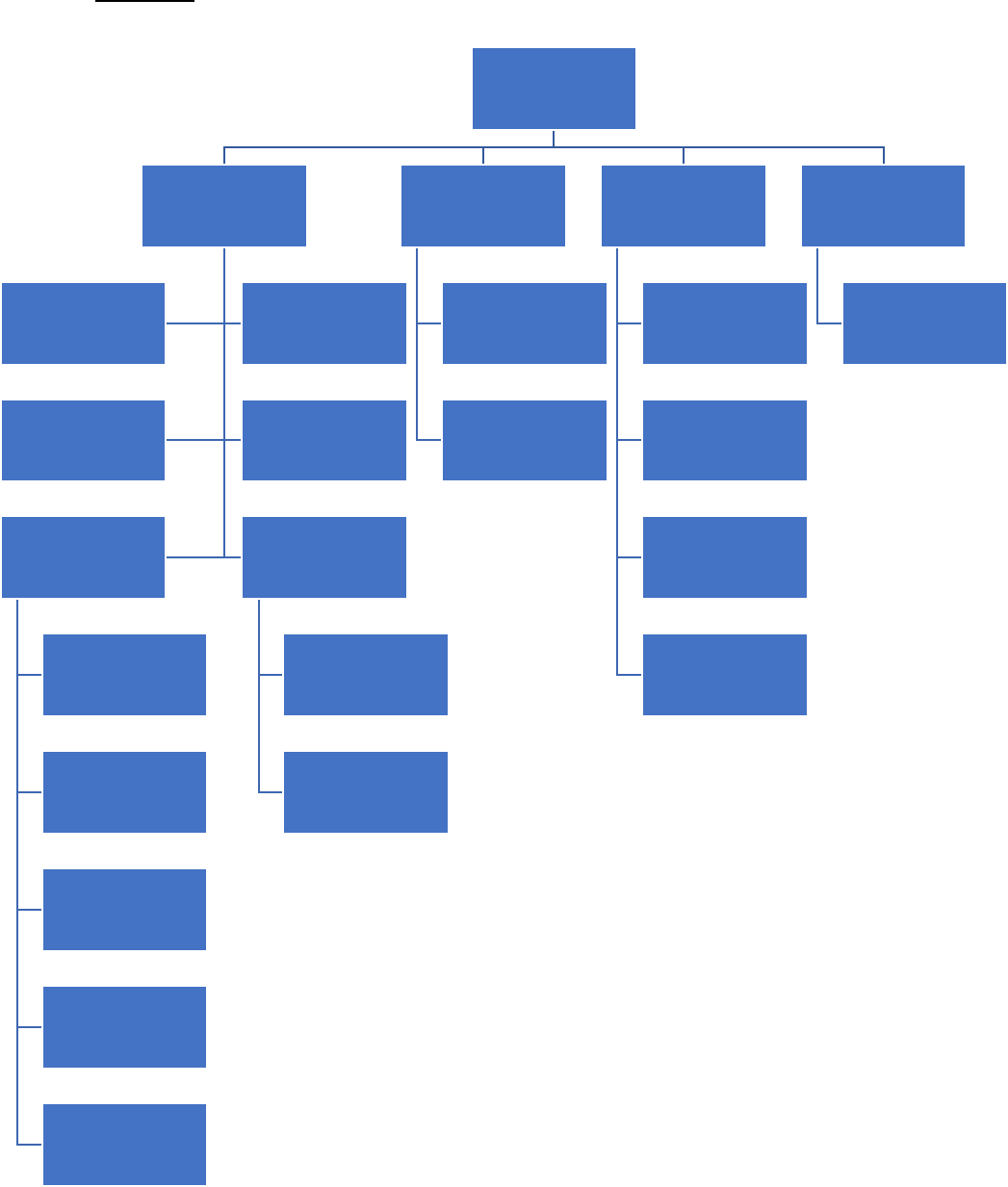
60
Warner School of Education and Human Development Organization Chart
Centers:
Sarah Peyre
Dean
Michael Daley
Center for Professional
Development
& Education Reform
Cathleen Cerosaletti
Associate Director,
Program Evaluation
Nahoko Kawakyu-
O'Connor
Director,
Program Evaluation
Marla Iverson
Director,
Leadership Outreach
Irene Narotsky
Operations Coordinator
Jennifer Kruger
Director, Math Education
Outreach
Cynthia Carson
Academic Program
Coordinator
Genie Foster
Associate Director, Math
Education Outreach
Maryanne Maves
Associate Director, Math
Education Outreach
Angela Messenger
Associate Director, Math
Education Outreach
Melissa Staloff
Associate Director, Math
Education Outreach
Michael Occhino
Director, Science
Education Outreach
Kimberly Fluet
Associate Director,
Science Education
Outreach
Kelly Pearson
Associate Director,
Science Education
Outreach
Raffaella Borasi
Center for Learning in the
Digital Age
Eric Fredericksen
Associate Director
David Miller
Associate Director
Shaun Nelms
Center for Urban
Education Success
Joanne Larson
Associate Director of
Research
Valerie Marsh
Assistant Director
Donntoya Bailey
Director,
Step 2 College
Trina Duncan
Assistant Director,
Step 2 College
Martha Mock
Center for Disability and
Education
Mary Judge Diegert
Associate Director
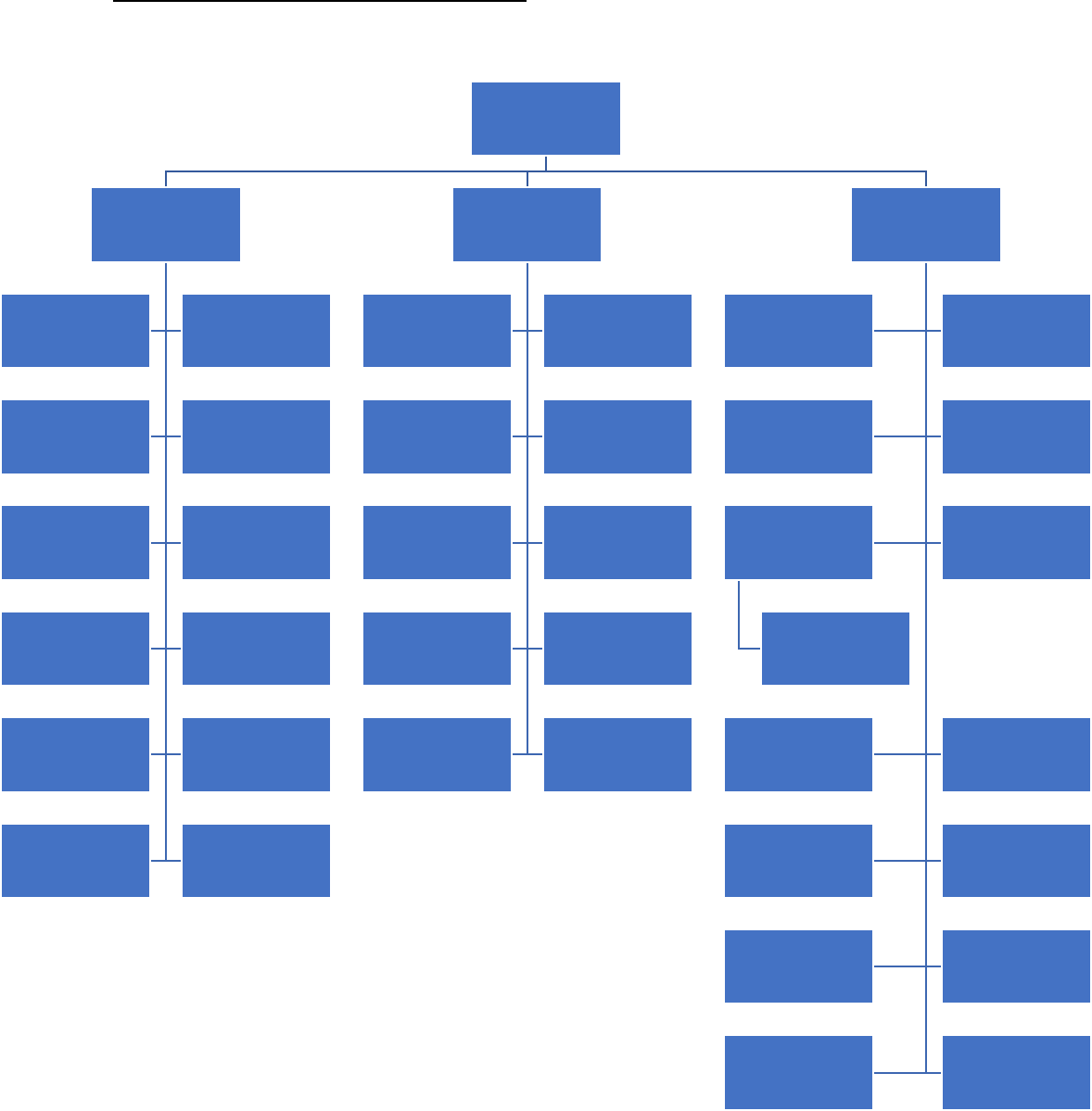
61
Warner School of Education and Human Development Organization Chart
Academic Program Areas & Faculty:
Sarah Peyre
Dean
Bonnie Rubenstein
Program Chair,
Counseling & Human
Development
Samantha Daley Andre Marquis
Joyce Duckles David McAdam
Douglas Guiffrida Meg McGee
Hennessey Lustica Amanda McLeroy
Martin Lynch Silvia Sörensen
Karen Mackie Nestor Tulagan
Andrea Barrett
Brian Brent
Program Co-Chairs,
Educational Leadership
Andrea Cutt Patrick McCue
Samantha Daley Manuel Rivera
Karen DeAngelis Tricia Shalka
Eric Fredericksen Tiffany Steele
Nahoko Kawakyu-
O'Connor
Patricia Vaughan-Brogan
Kevin Meuwissen
Program Chair,
Teaching & Curriculum
Raffaella Borasi Joanne Larson
Zenon Borys Kristen Love
Jeffrey Choppin
Anna Rynski
April Luehmann
Mary Jane Curry Valerie Marsh
Samantha Daley Martha Mock
David Hursh Hairong Shang-Butler
Nicole King Carol St. George
